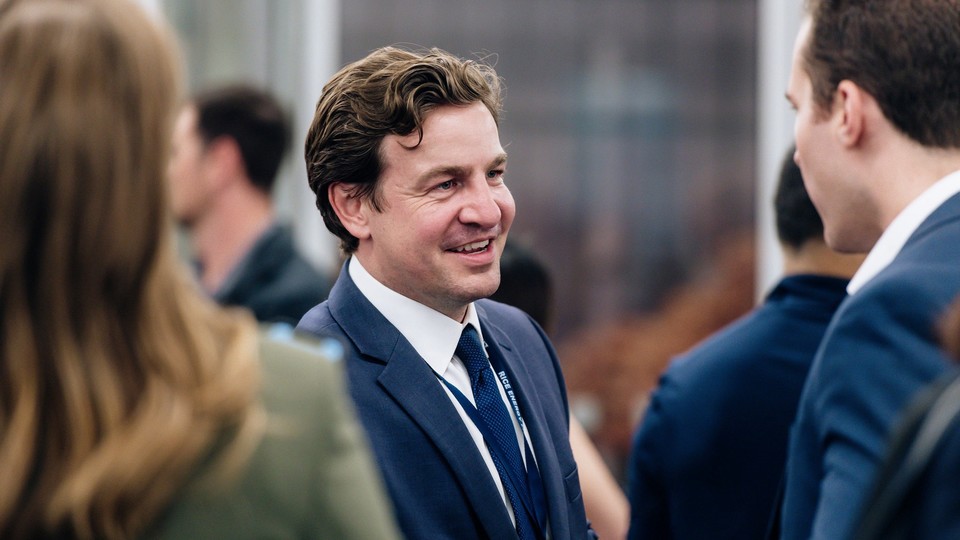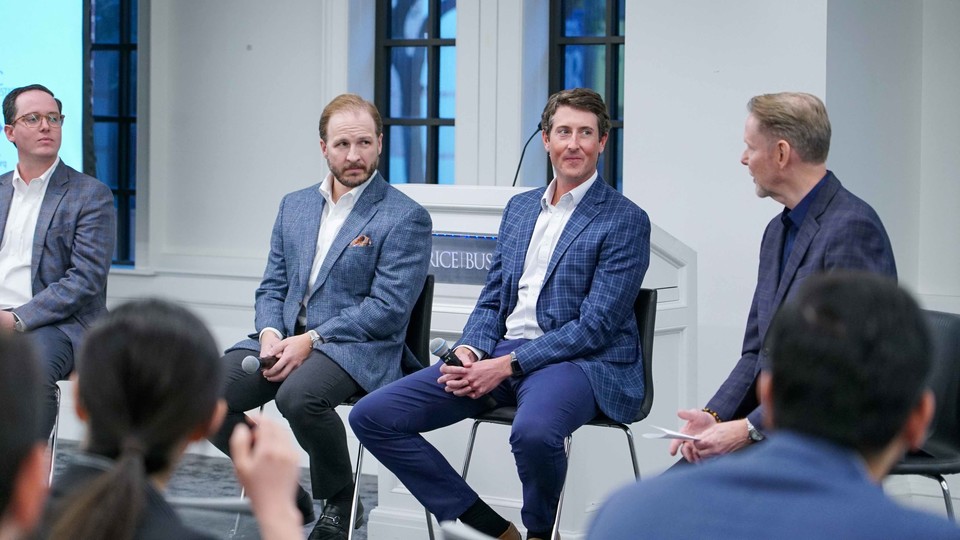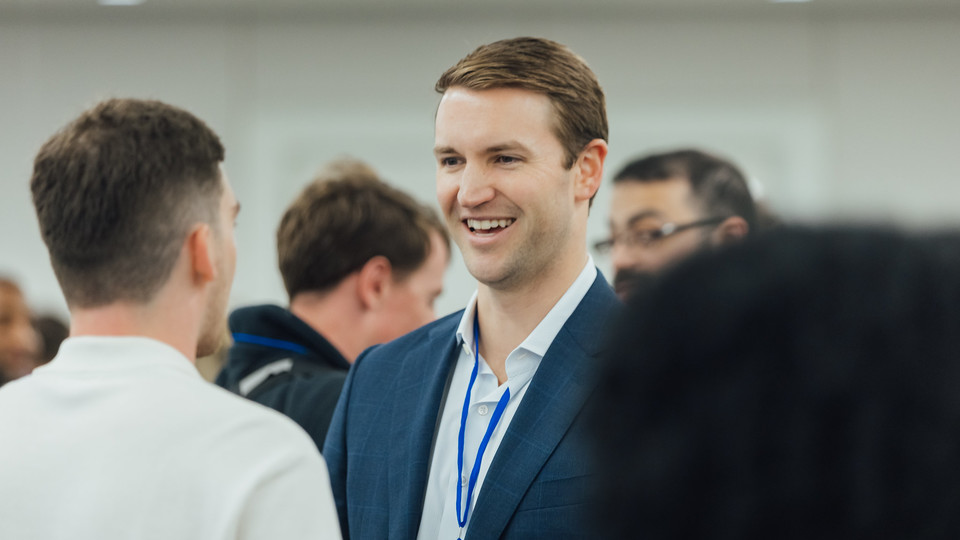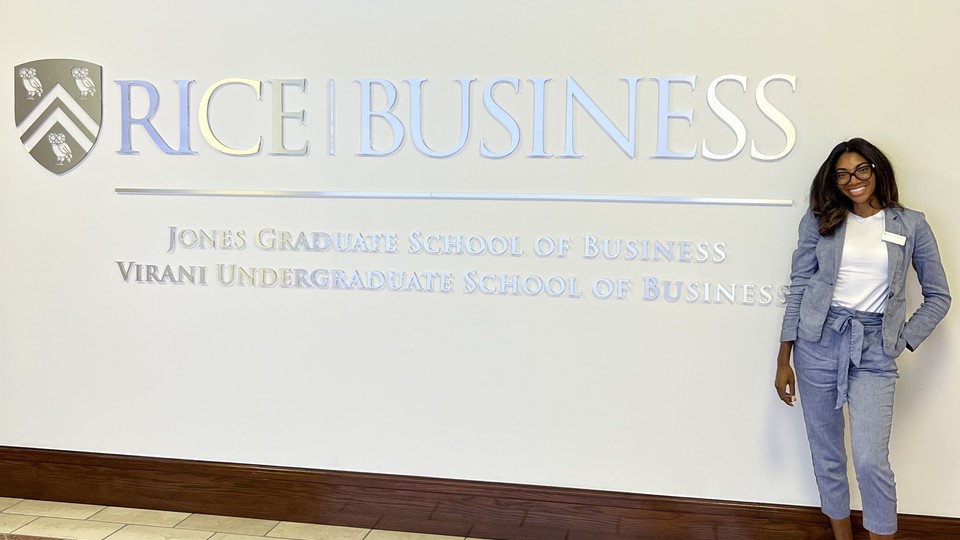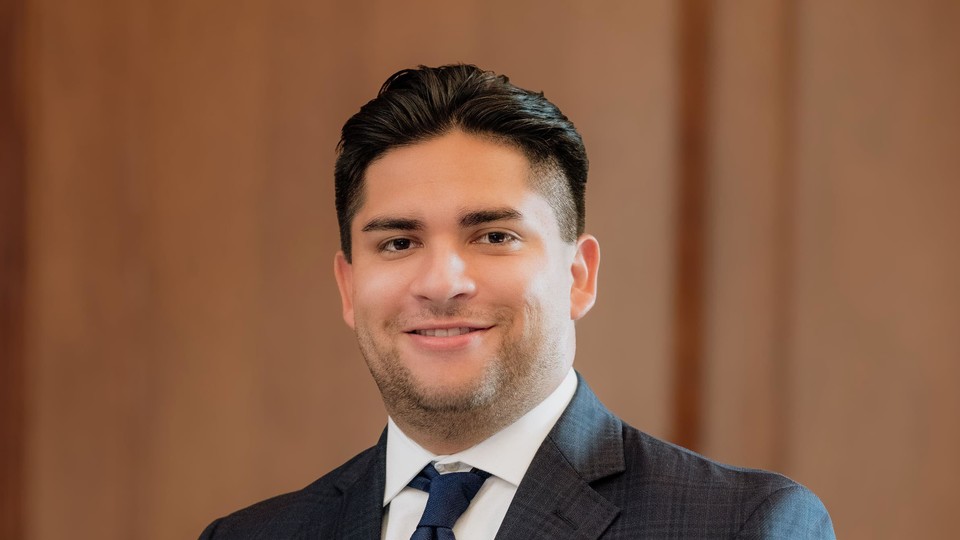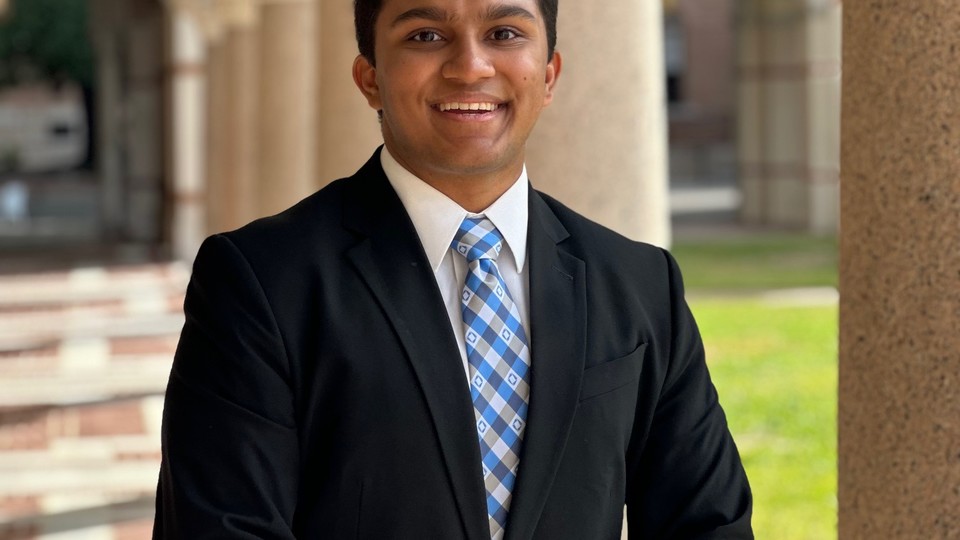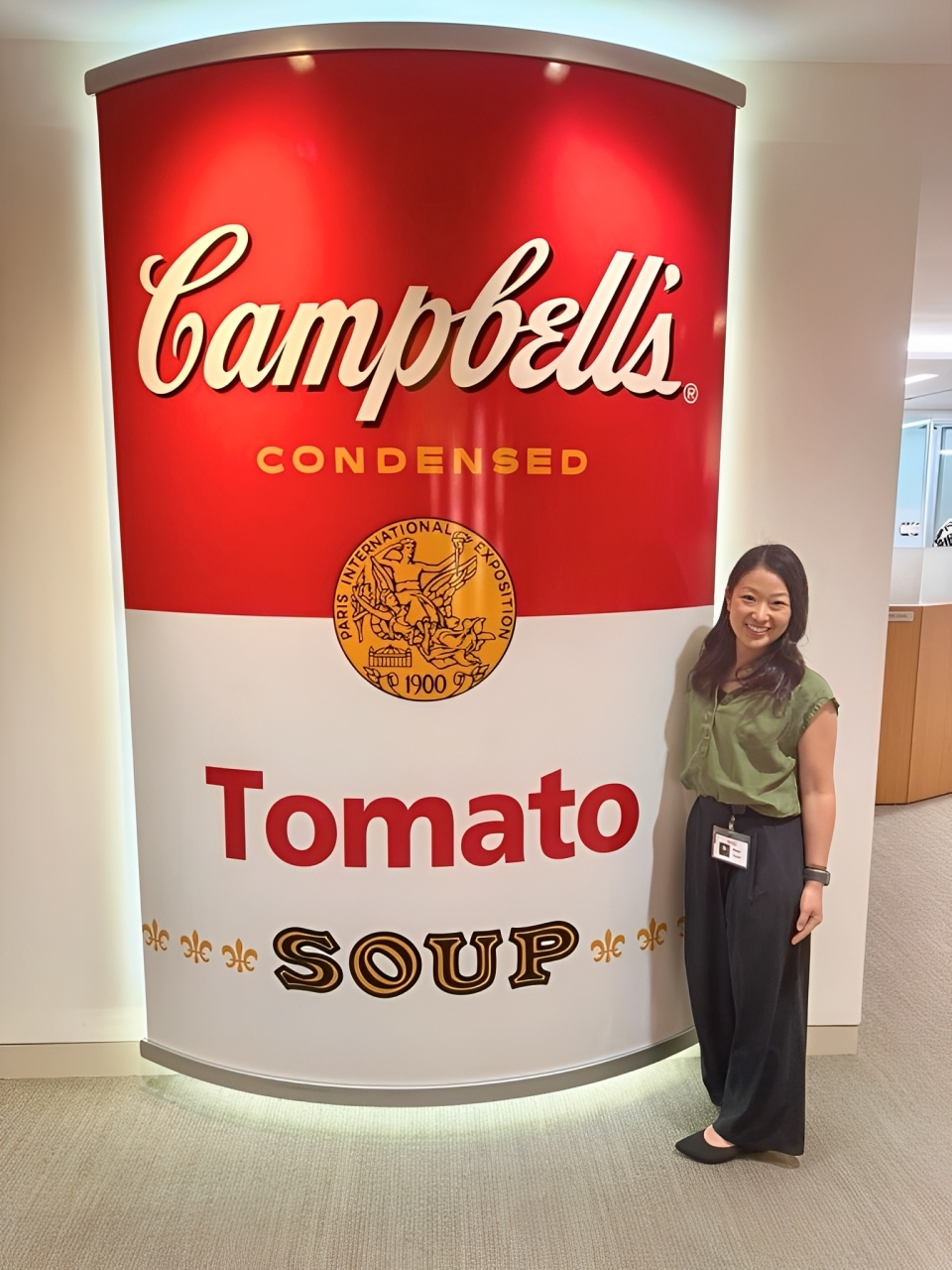
2025 Best & Brightest Executive MBA: Patrick Garvey
"All the professors at Rice Business are truly world-class. As a professor myself, who regularly teaches and speaks at conferences, I was often impressed by how captivating and effective they were in the classroom."

Rice University MBA programs rank among top 5 in U.S. by Princeton Review
Rice University’s Jones Graduate School of Business MBA programs have been ranked among the top five in the country in The Princeton Review’s 2025 Best Business Schools rankings.

From Healthcare Operations to Brand Management: Asari Yahati's Internship at Campbell's
Meet Asari Yahata, a Rice MBA and summer intern at Campbell's, who pivoted from a career in occupational therapy to brand management at one of America's largest and oldest food companies.

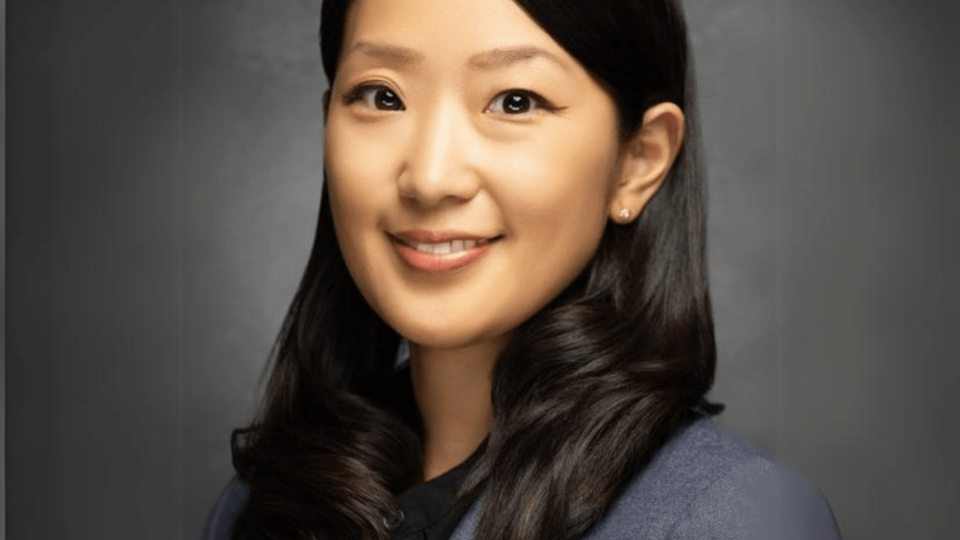
Internship Company: Campbell’s Company
Internship Department: Brand Management/Marketing
Internship Location: Camden, New Jersey
Position Before MBA:
- Title: Home Health Occupational Therapist
- Company: Allegheny Health Network
- Location: Pittsburgh, PA

How did you secure your internship?
The most important lesson I learned was to apply for any opportunity that genuinely interests you, even if you feel unsure about your qualifications. I found this internship through Owl Careers and other job posting sites. After researching the company, I initially doubted I would hear back because of my non-traditional background. But if I had let that false assumption stop me, I would have missed out on an incredible summer learning experience at Campbell’s.
A non-traditional background can bring valuable transferable skills such as communication, organization, critical thinking, problem-solving and teamwork. The Career Development Office (CDO) also helped me highlight these strengths on my resume in a way that resonated with recruiters.
I also dedicated time to refining my resume and pitch, actively seeking feedback from others to gain different perspectives and ensure I was well prepared. The interview process included a phone screening with one associate brand manager and a final interview with two senior associate managers, which included a case. Fortunately, Rice Business’ recruiting preparation helped me feel confident throughout the process.
What is your role and responsibilities during the internship?
I was one of six MBA brand management interns at Campbell’s. While the company is known for its iconic tomato soup, it also owns a portfolio of well-known brands including Goldfish by Pepperidge Farm, Kettle Chips, Cape Cod, Swanson and Rao’s. Each intern was assigned a brand and challenged to solve a real business problem.
I took full ownership of my project for the $650 million brand, focusing on identifying white space opportunities to drive future growth. This involved proactively conducting market landscape research, performing deep data analysis, learning new tools and collaborating closely with cross-functional teams. As the scope of the project was broad, I regularly shared progress and insights with team members to stay aligned and ensure we remained focused. At the end of the summer, I delivered my strategic recommendations to vice presidents, brand managers and the broader team.
A key part of my role was quickly ramping up on the consumer-packaged goods industry and applying agile, hypothesis-driven thinking to draw insights from complex data. I developed data-backed hypotheses, created visual storytelling and presented actionable recommendations while working closely with teams across consumer insights, customer strategy and supply chain.
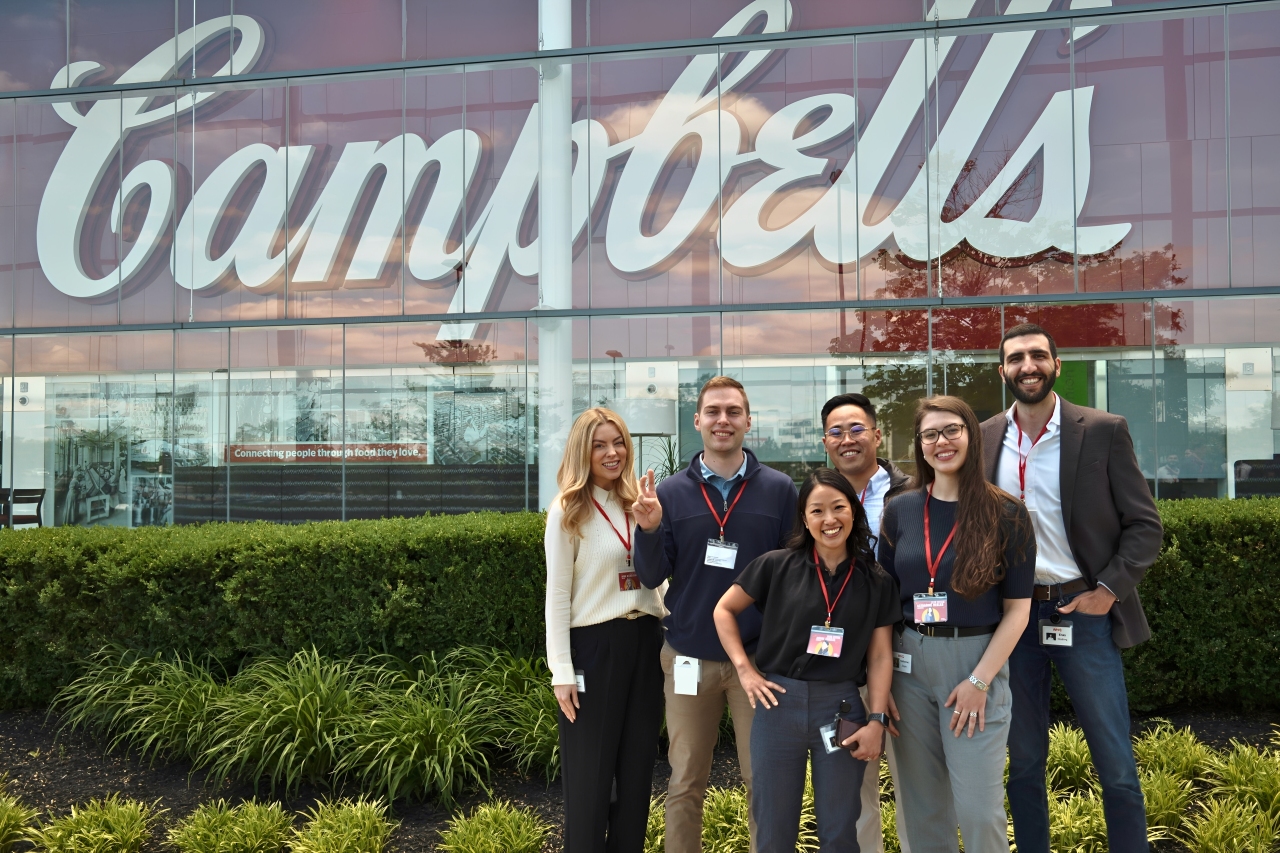
How did your MBA coursework prepare you for this internship?
Before pursuing my MBA, I worked in the healthcare industry as a frontline provider, and I was involved in operational improvement and service innovation. While I had some experience using data, this was my first time working with large datasets in the consumer-packaged goods (CPG) space.
When I received my problem statement, I immediately applied what I had learned in the MBA program. I built an issue tree, identified key drivers and prioritized my analyses using a hypothesis-driven approach. This was something I was not equipped to do before starting my MBA journey.
Rice Business courses in strategy, marketing, finance and organizational behavior, as well as the Global Field Experience, provided critical tools and frameworks that helped me craft a clear, data-backed strategic recommendation. There were many moments during the summer when I thought, “This is exactly what I learned in class.” I am truly grateful for how both academic courses and extracurricular opportunities prepared me to succeed and exceed expectations during my internship.
How does the internship align with your career goals?
Some of my goals in pursuing an MBA were to diversify my professional experience, remain open to new learning opportunities, and build a meaningful network for both my career and life. This internship gave me firsthand exposure to brand strategy, consumer behavior and cross-functional collaboration, all of which are essential components of general management. It also helped me strengthen a transferable skill set that I can apply across industries, particularly in roles that blend strategy, innovation and impact.
Most importantly, I was able to form meaningful relationships with both interns and full-time employees. Campbell’s offers a well-structured and supportive program for brand management interns, which created a strong environment for connection and learning.
One of the most valuable lessons I have learned during my MBA journey is that networking truly matters. Building relationships with talented, driven and inspiring people is one of the most important assets I’ve gained from this internship. It directly aligns with my career goal of expanding a network that is both personally and professionally fulfilling.
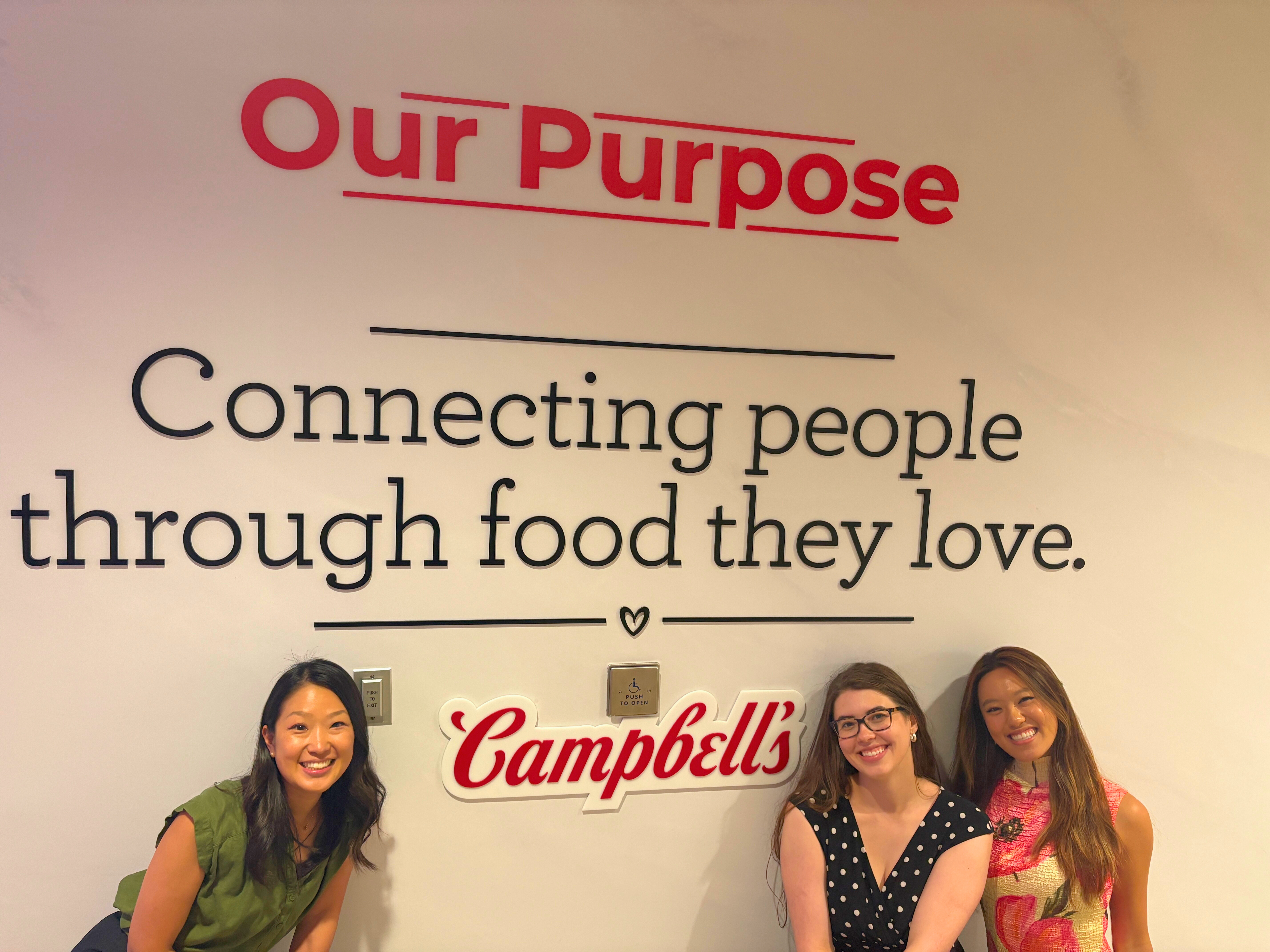
What is your favorite part of your internship experience?
First, I truly enjoyed the learning moments. Understanding how people think, how they interpret data and how they are persuaded by insights was both challenging and fulfilling. Working at Campbell’s gave me access to massive data in the CPG space to find out market share, trending SKUs, consumer trends and more. One of the most rewarding challenges was translating complex analysis into clear, actionable insights.
Second, the experience itself. Working on a $650 million brand and collaborating with cross-functional teams was an incredible opportunity, especially at a company with such strong distribution across the United States. I learned to analyze consumer trends, understand shifting demand and forecast the potential impact of strategic decisions on areas like supply chain. It was exciting to see the real-world outcomes of our work, especially when noticing changes at the retail level. Now I view shelf space and advertising in grocery stores with an entirely new perspective.
Lastly, the people. I met so many supportive and inspiring individuals, including both interns and full-time employees. I truly hope to stay connected with many of them well beyond the internship. The relationships I built this summer were some of the most meaningful parts of the experience.
What advice do you have for prospective students?
Do not hesitate to reach out and start building your network early. Networking is not just about finding a job. It’s about learning, growing and discovering unexpected opportunities through meaningful conversations.
Stay humble throughout the journey. Securing an internship is the result of your hard work, skills and experience, but also timing and a bit of luck. There are so many generous people who are willing to support, guide and encourage you, even while managing their own responsibilities.
Keep challenging the imposter syndrome. It is normal to question whether you are qualified or capable enough but having a strong and positive mindset makes a difference. When you face setbacks, remind yourself that it is a valuable opportunity to grow and learn. Most importantly, enjoy the experience and embrace it as an important part of your life journey.
Interested in Rice Business?
You May Also Like
Grounded in Service, Growing in Strategy: Meet Marcelo Bini
Marcelo Bini shares what drew him to Rice Business and the Hybrid MBA, along with standout moments from Launch.
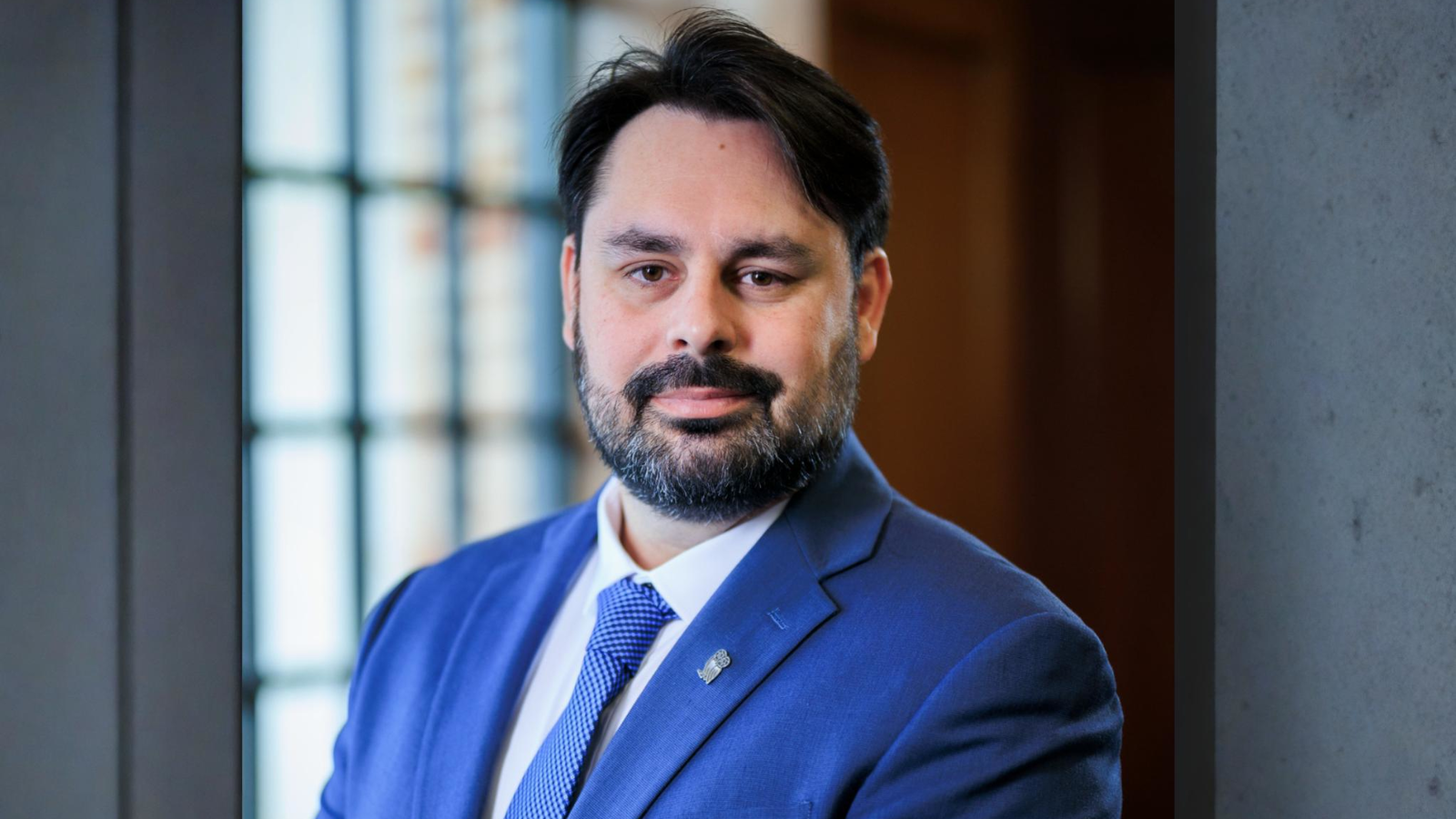

Marcelo Bini has dedicated his career to protecting communities. Now, he’s taking the next step in his leadership journey as part of the Hybrid MBA Class of 2027. We asked him to share a bit about his path and why Rice was the right fit.
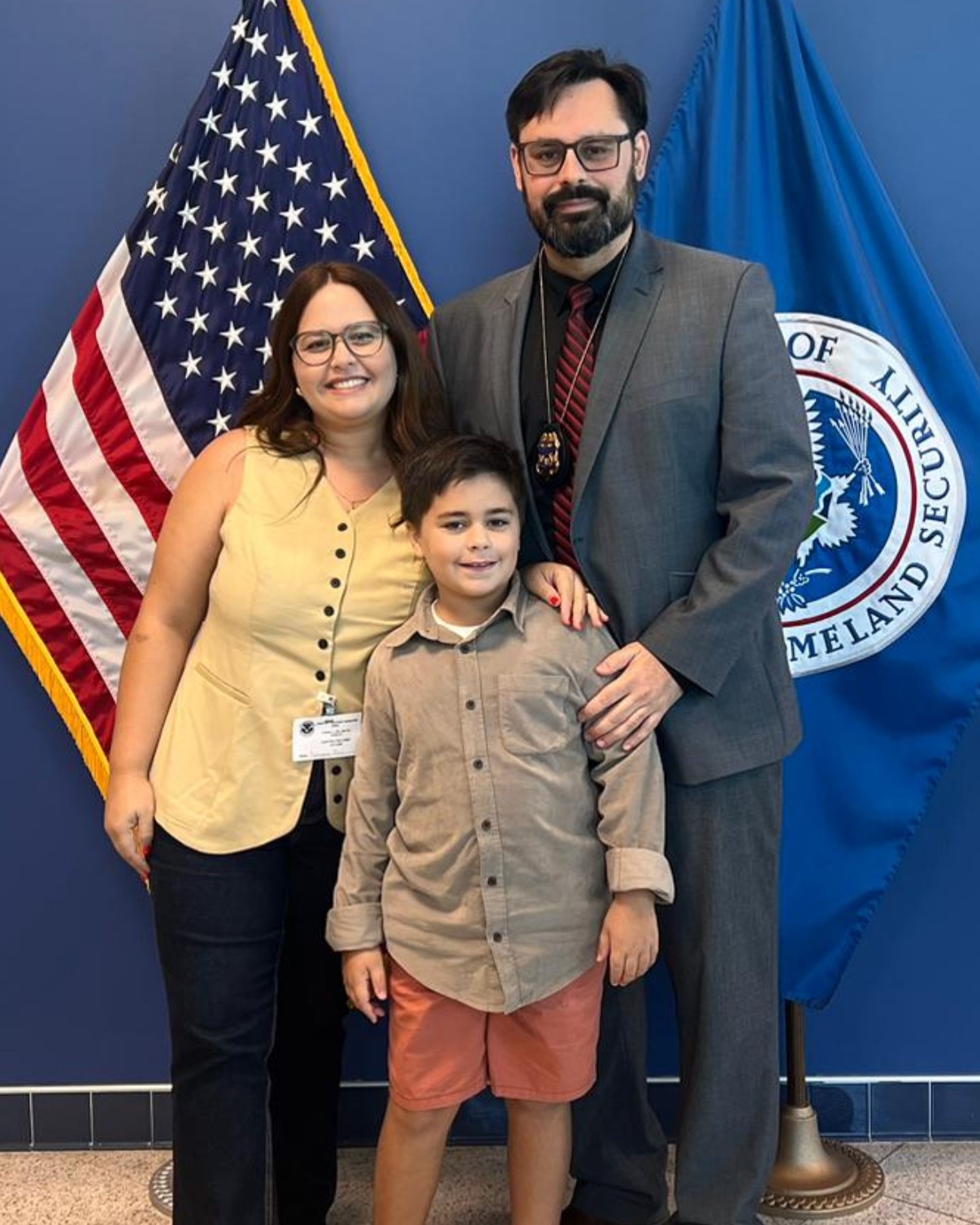
Tell us a little about your current career and background.
- Education: Criminal justice undergraduate degree from the University of Houston
- Most Recent Employer and Job Title: Special agent for the U.S. Department of Treasury
- Career Highlights and Industry Experience: With over a decade of experience in law enforcement and criminal investigations, I currently serve as a special agent with IRS-Criminal Investigation, where I lead complex financial crime cases and multi-agency operations. My career began in the U.S. Army as a combat medic, where I developed a foundation in leadership, resilience and critical decision-making under pressure. I later served as a police officer in Texas, specializing in active threat response and community safety. As the founder of Tactical Medicine Academy, I’ve trained over 2,000 law enforcement officers across Brazil in active shooter response and combat medicine. My work has been defined by a commitment to justice, operational excellence and innovative approaches to public safety.
What is a fun fact about you?
I’m a big fan of Brazilian churrasco — I love grilling over open flames and can prepare a full Brazilian barbecue, from a perfectly seasoned picanha to homemade farofa. My friends say I never let anyone leave hungry!
Why did you choose Rice Business?
I chose Rice Business because of its reputation for cultivating principled innovative leaders and its close-knit collaborative community. The world class faculty create an environment where meaningful relationships and mentorship thrive.
Why did you choose our Hybrid MBA program?
The Hybrid MBA format aligns perfectly with my demanding career, allowing me to apply lessons from the classroom directly to complex real-world challenges. Rice’s strong focus on strategy, leadership and entrepreneurship resonates with my goal of driving impact.

How are you feeling about starting your MBA? What are you most looking forward to?
I’m very excited and honored to begin this transformative journey at Rice Business. Starting the MBA feels like the perfect next step to broaden my leadership skills, sharpen my strategic thinking and learn from such a talented, diverse group of peers. I’m eager to grow as a leader who can make a lasting impact in both business and public service.
How was your experience during launch week? What were your first impressions of the program and your classmates?
Launch Week was an incredible experience — it felt like stepping into a community of driven, inspiring individuals who were all eager to learn, collaborate and grow together. From day one, I was impressed on how approachable and accomplished my classmates are. I particularly enjoyed the team dynamics and workshops, which pushed me out of my comfort zone while reinforcing the importance of trust. More than anything, Launch Week made me feel like I’m not just starting an MBA — I’m joining a lifelong network of peers who will challenge and support me.
Marcelo Bini is a Hybrid MBA student in the Class of 2027.
The Rice MBA
Bringing Fashion to Market: Vivian Lin’s Internship at Kate Spade New York
Meet Vivian Lin, an ambitious business major who spent her summer internship in New York City as a marketing intern at Kate Spade New York.
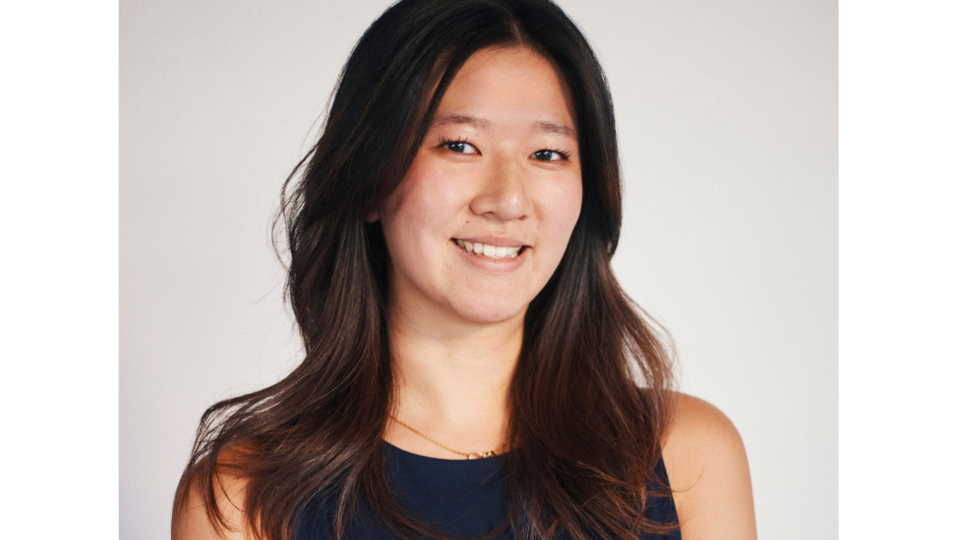
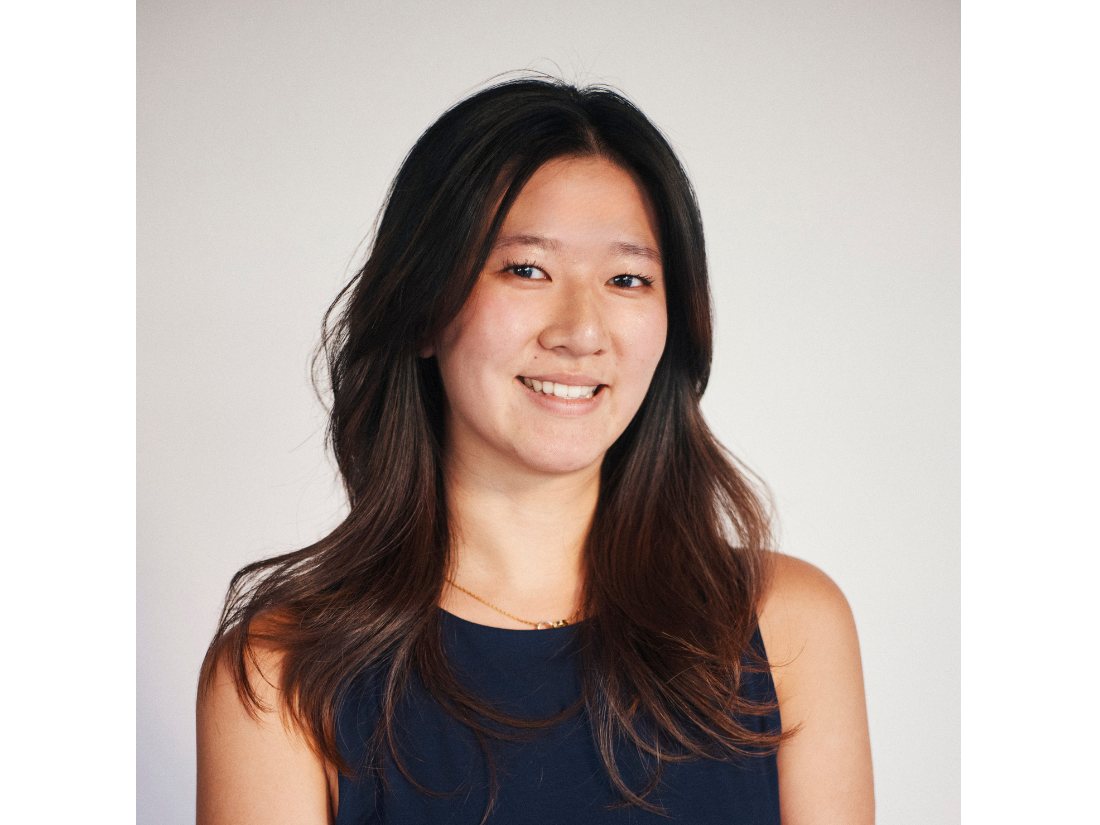
Internship Company: Kate Spade New York
Internship Department: Marketing
Internship Location: New York, NY
How did you secure your internship?
I found this internship on LinkedIn right after winter break and applied. The application process involved submitting materials through the Tapestry website; Tapestry is the parent company of both Coach and Kate Spade. You can choose your preferred department from options like marketing, finance, merchandising, e-commerce, architecture and more.
The process included submitting a resume, answering short-response questions, and completing a HireVue video interview. A few weeks later, I received an interview offer, and about two weeks after that, I got a call that I had been accepted!

What is your role and responsibilities during the internship?
My role primarily involves supporting various marketing initiatives and project managing collaborations with external licensing vendors and cross-functional teams. I take project briefs and turn them into actionable plans, creating timelines and ensuring key milestones are met.
It’s a highly collaborative role that requires strong communication and organizational skills. One of my current projects is analyzing spring 2026 fashion trends and developing marketing strategies for our upcoming handbag collections.
How did your Rice Business coursework prepare you for this internship?
BUSI 380 (Marketing) was especially helpful in preparing me for this internship. The case studies and foundational marketing principles we covered gave me a great understanding of how to think strategically about brand positioning and consumer behavior. I was able to apply these concepts directly to Kate Spade’s marketing strategies and referenced real-world examples from class during my interview.
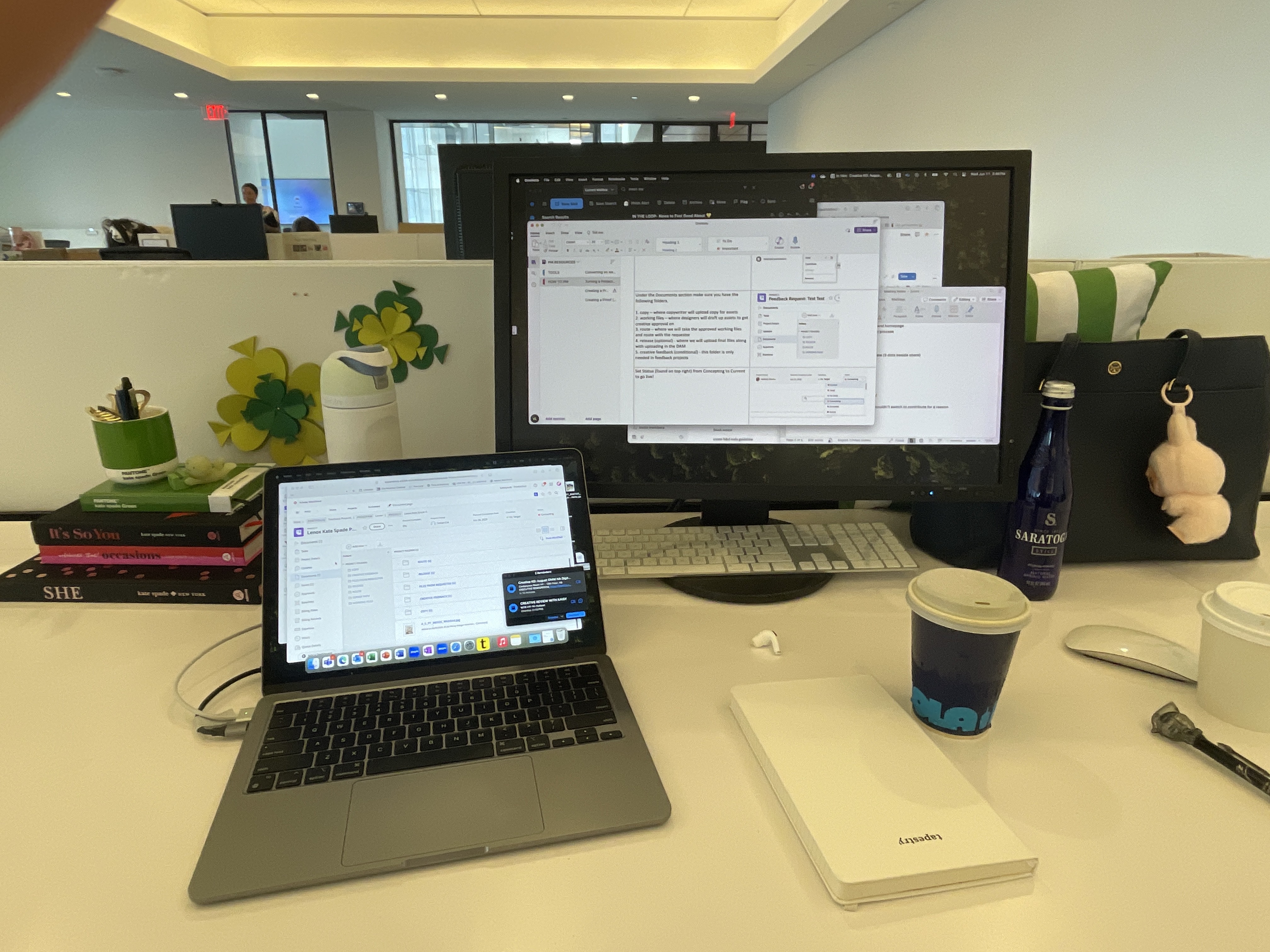
How does the internship align with your career goals?
I’ve always been drawn to roles that blend creativity with analytical thinking, which is why I wanted to explore marketing. This internship is a great opportunity to test whether this path is right for me and to better understand my potential career trajectory within the marketing field.
What is your favorite part of your internship experience?
It’s been amazing to work at a fashion company and gain insight into the entire supply chain — from concept to consumer. Most people don’t realize that there are so many behind-the-scenes steps that go into creating a product. I also got so lucky to be working at a company that has such amazing people, culture and work-life balance.
Interested in Rice Business?
You May Also Like

The Jones Graduate School of Business is a power player in the MBA ranks, finishing 18th in Poets&Quants’ composite ranking of the top 100 U.S. programs and sixth in our ranking of the best online MBAs. As of fall 2021, Rice Jones also offers an undergraduate business major. Its first class will graduate this May.
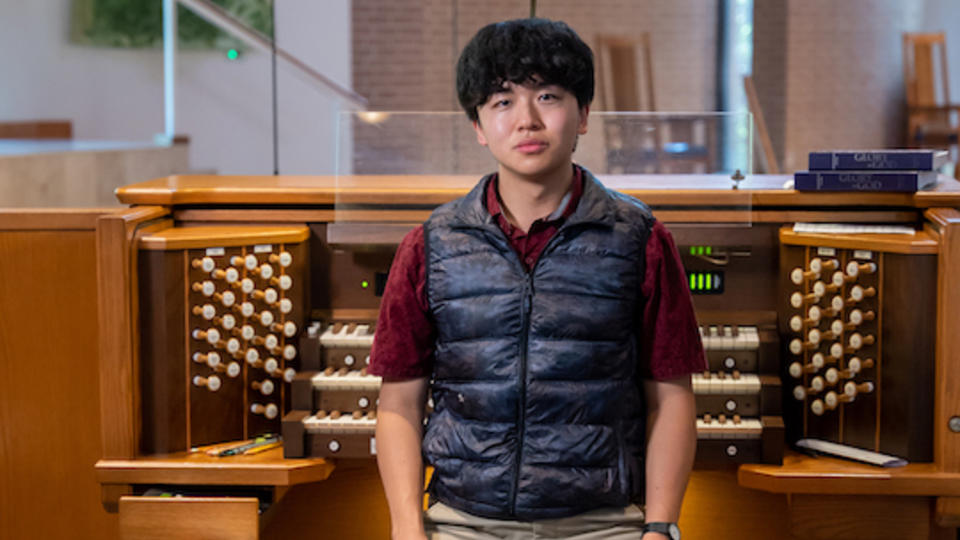
Bruce Xu ’24 came to Rice to study in the Shepherd School of Music but he’s since switched to the new undergraduate business major from the Jones Graduate School of Business. Performing at The Woodlands Community Presbyterian Church helps him not only maintain his musical talent, but also play his part in the Greater Houston community.
Meet Isamar Lopez-Veracruz: From Education Leadership to Tech Innovation at JPMorgan Chase
Meet Isamar Lopez-Veracruz, a public education leader and family advocate who secured a summer internship at JP Morgan Chase in Plano, TX.
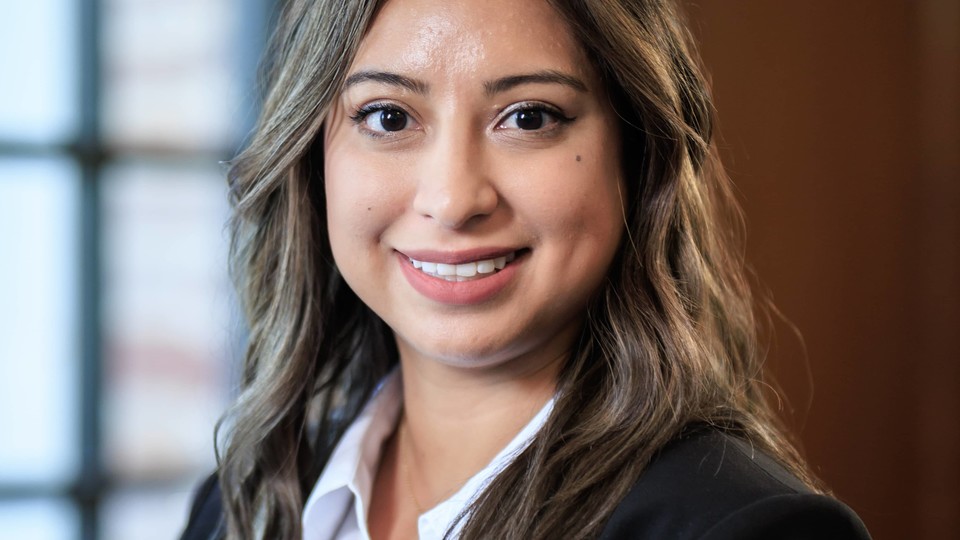

Internship Company: JP Morgan Chase
Internship Department: Corporate Challenge Product Team, Customer Acquisition Marketing Platforms
Internship Location: Plano, TX
Position Before MBA:
- Title: Director of Family Engagement
- Company: YES Prep Public Schools
- Location: Houston, TX
How did you secure your internship?
I connected with the JP Morgan Chase (JPMC) team at the National Black MBA Association Conference in Washington, D.C. They’ll be in Houston this upcoming year and will be hosting an event at Rice.
What is your role and responsibilities during the internship?
What many people don’t realize is that large banks are also major tech companies. They manage vast amounts of data, which means their technology and innovation teams are critical to the firm’s success. As part of a rotational program, I was placed with the Product Tech team supporting the Corporate Challenge platform, which manages registration across 16 locations in eight countries and six continents.
My project focused on developing a go/no-go strategy for a new global lead acquisition feature. I was responsible for stakeholder management and documenting project workflows. The platform, now in its third year, still has tremendous growth potential, and I’ve enjoyed diving into product development while learning how customer experience shapes strategic decisions. A highlight of my internship was being in the working group of AI implementation for our product.
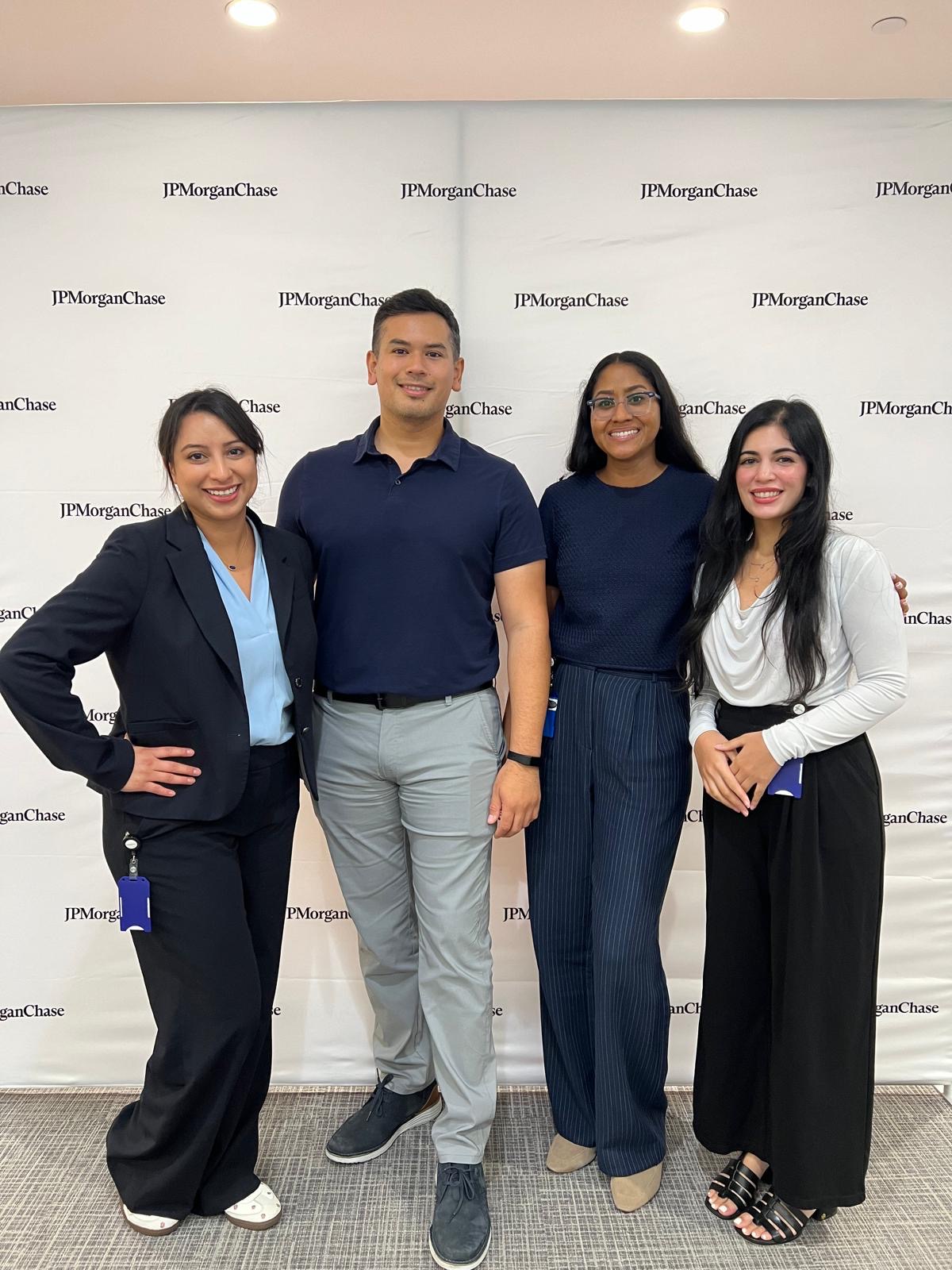
How did your MBA coursework prepare you for this internship?
Courses like Competitive Strategy, Strategy Formulation and Implementation, Customer Experience, Communications, and New Product Development were instrumental. The frameworks and tools I learned helped me bring fresh insight and structure to a well-established team.
My communications class was especially useful for understanding the pyramid structure of communication, and learning how to leverage communication to influence others helped me lead stakeholder conversations with teams across the globe. Having a strong foundation from my MBA allowed me to contribute meaningfully from day one.
How does the internship align with your career goals?
As a career pivoter, this rotational program is a perfect fit because it allows me to explore various business areas like finance, tech, risk, product, data and strategy. I came into business school seeking exposure to new industries beyond education, and this internship is giving me exactly that.
One of my top goals was to apply what I learned in the MBA to real-world work, and I’m grateful to already be doing that. This experience is helping me better understand corporate life and where I can make the biggest impact.
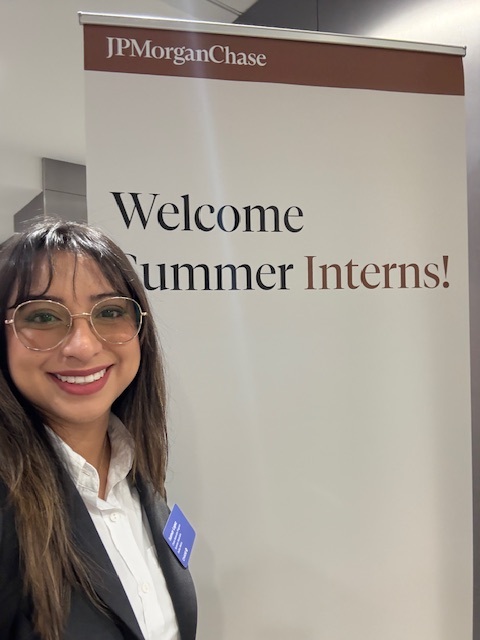
What is your favorite part of your internship experience?
Building relationships with my recruiter, Taylor P., and the other interns has been a highlight. We supported each other through challenges, celebrated wins together and created a real sense of community during our first rotation.
What advice do you have for prospective students?
Keep an open mind. I didn’t think I’d be considered for JPMC because of my non-traditional background, but they were genuinely interested in fresh perspectives and people who are eager to learn.
The recruitment process was warm, transparent and supportive from start to finish — and that support continued throughout the internship. I truly enjoy being part of a company that invests in its people. Also, the opportunity to attend town halls with senior leadership makes the company feel surprisingly tight knit, despite its global scale.
Interested in Rice Business?
You May Also Like
Meet Shanker Nair: Hybrid MBA Class of 2027
Find out why Shanker Nair chose Rice Business and the Hybrid MBA program, and hear his honest reflections on launch week.
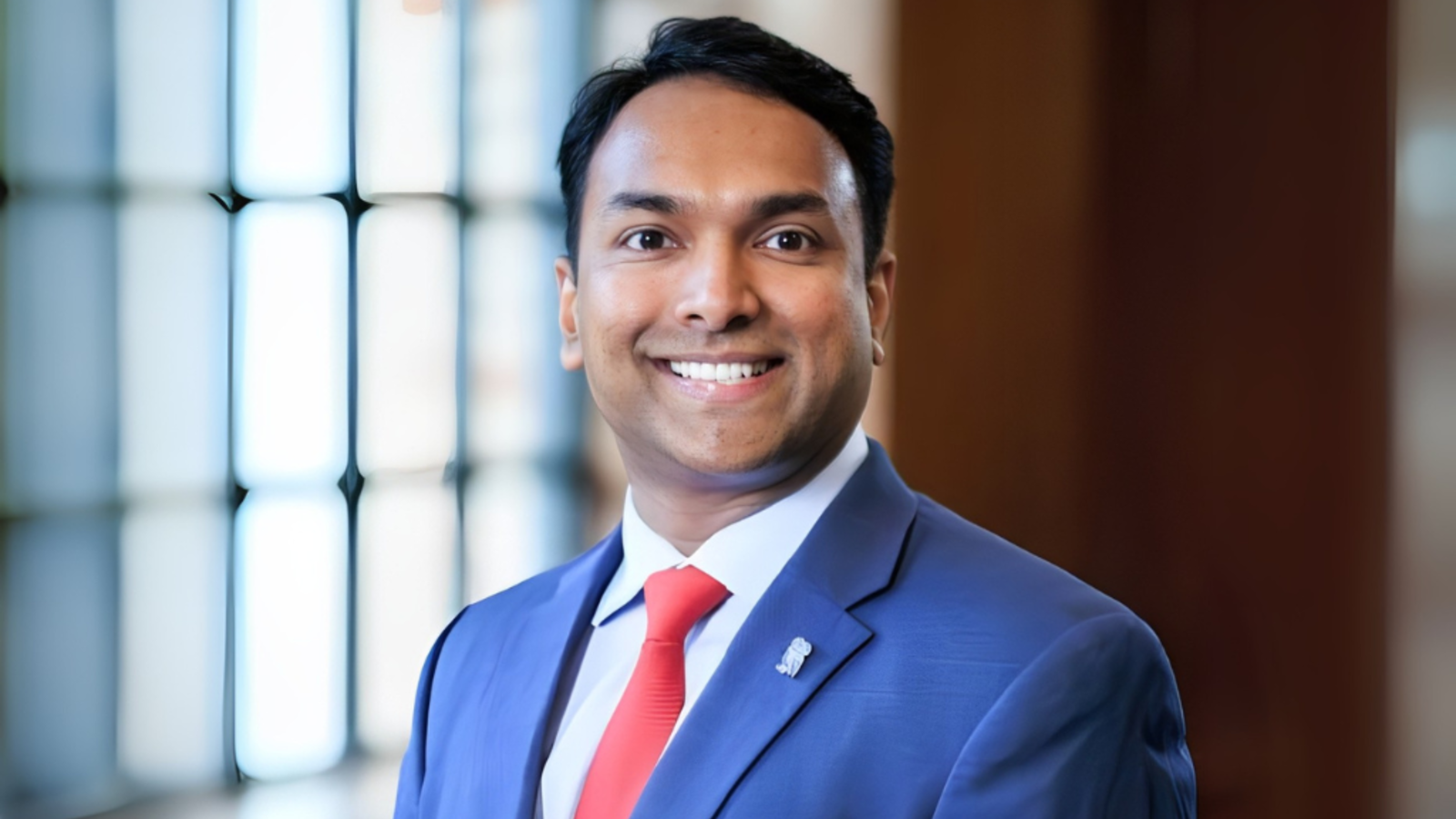

Shanker Nair is one of the newest members of Rice Business’s Hybrid MBA Class of 2027. We asked him to share a little bit about himself and his experience starting the program. Here's what he had to say.
Tell us a little about your current career and background.
- Education: I completed my undergraduate degree in chemical engineering in Bangalore, India, followed by a master’s degree in petroleum engineering from New Mexico Institute of Mining and Technology in Socorro, New Mexico.
- Most Recent Employer and Job Title: I work as a senior reservoir engineer with Apache Corporation.
- Career Highlights and Industry Experience: I have worked across both the downstream and upstream oil and gas sectors, with professional experience in Austria, Shanghai (China), India and the United States. I currently serve as a reservoir engineer and hydraulic fracturing specialist, with expertise spanning both U.S. domestic (unconventional/shale) and international (conventional) assets.
What is a fun fact about you?
I love Latin dancing (especially salsa and bachata), have won a workplace push-up competition with 71 reps, speak six languages, enjoy oil painting and am an avid chess player.
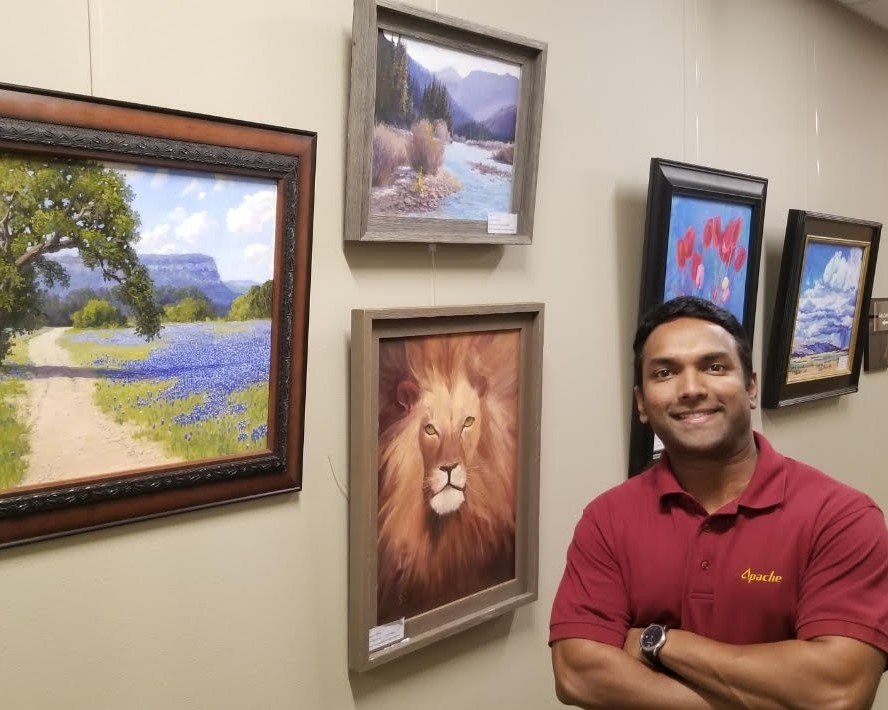
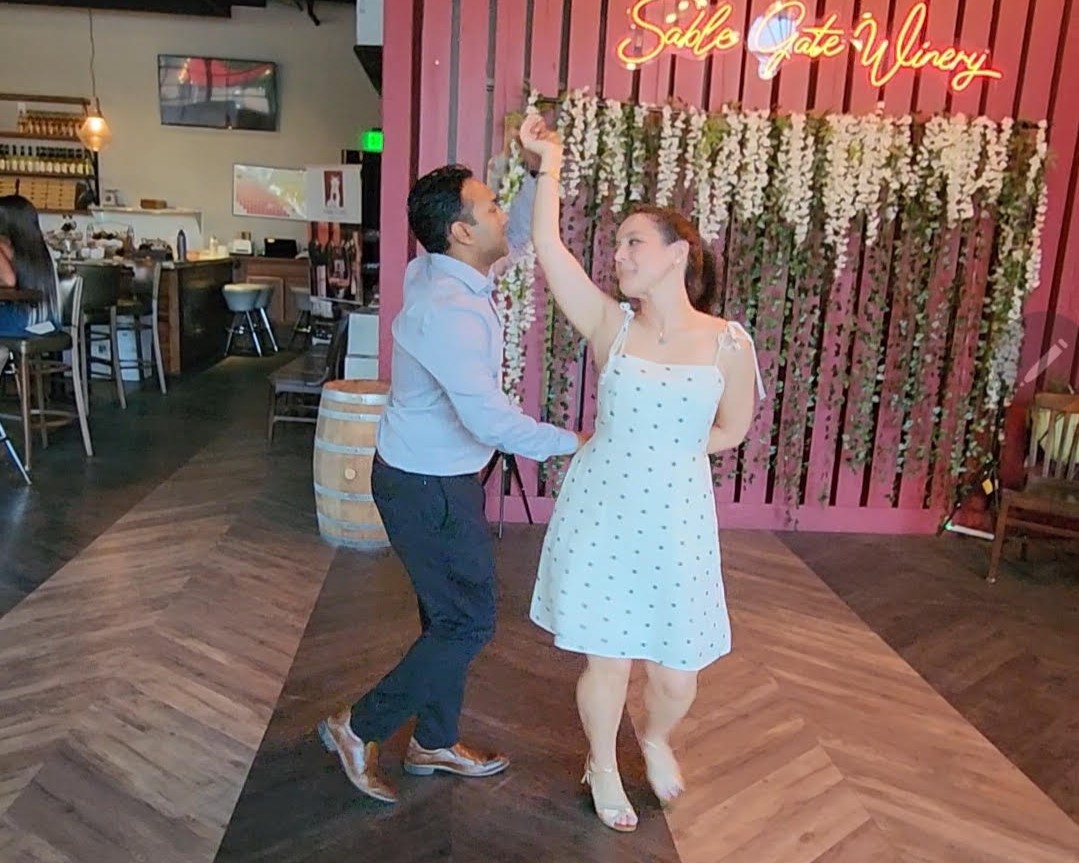
Why did you choose Rice Business?
I chose Rice Business for its strong reputation, powerful alumni network and the high quality of education it offers. Several colleagues who completed the Rice MBA spoke very highly of their experience, which gave me confidence that this was the right fit for my professional and personal growth.

Why did you choose our Hybrid MBA program?
With a baby on the way, due in September 2025, and the ongoing process of rebuilding our home after losing it to a fire during Hurricane Beryl in 2024, the Hybrid MBA program was the ideal choice. It allows me to balance personal responsibilities while still pursuing my goal of earning an MBA from a top-tier institution.
How are you feeling about starting your MBA? What are you most looking forward to?
I’m excited to start my MBA journey. With an engineering background, I haven’t had much exposure to some of the core areas of business, so I’m looking forward to learning more about strategy, finance and leadership. These are areas I believe will help me grow into a stronger manager and bring more value to my organization. I’m also hoping the program will equip me with the right tools and perspective to explore entrepreneurship down the road, if that’s a path I choose to take.
How was your experience during launch week? What were your first impressions of the program and your classmates?
I was truly impressed by the Rice staff and administration — from the dean and assistant dean to the faculty and support team. Everything was well organized, and the clear communication made Launch Week smooth and enjoyable. My classmates immediately stood out as driven, motivated and intellectually curious. The cohort’s diversity was remarkable, and it was inspiring to see how eager everyone was to collaborate and share ideas. I was also amazed at how quickly a group of 25 of us bonded — taking time in the evenings to unwind and get to know one another made the experience even more memorable and teeing up for the next two years.
Shanker Nair is a Hybrid MBA student in the Class of 2027.
The Rice MBA
How Advance Selling Helps Businesses Weather a Crisis
New research shows how to tap customer support when times get tough.


Based on research by Yiangos Papanastasiou (Rice Business), Shuang Xiao (Zhongnan University of Economics and Law) and S. Alex Yang (London Business School)
Key findings:
- During a crisis, customers are more likely to pre-pay for services if they care deeply about the business.
- For firms under high financial distress, customers are more likely to purchase future services when businesses have a funding deadline and a pay-later option.
- For firms under moderate distress, a hybrid approach of small loans and pre-sales can help keep things running.
The COVID-19 pandemic hit small businesses hard. Sales plummeted. But fixed costs like rent, payroll and repairs kept coming — pushing many companies to the brink of bankruptcy.
One creative solution was advance selling: i.e., “pay now, enjoy later.” Restaurants, salons, dry cleaners and other small businesses asked loyal customers to purchase services months in advance, providing immediate cash to stay afloat. In return, customers preserved access to the businesses they valued.
In Germany, for example, the nonprofit initiative “Pay Now Eat Later” sold meal vouchers redeemable post-lockdown. India’s “Rise for Restaurants” offered future-use discounts. And U.S. business owners turned to crowdfunding sites like GoFundMe and Kickstarter to cover salaries and expenses. (Many of these platforms use an all-or-nothing rule: If the funding goal isn’t met, no one is charged.)
Not all advance-selling plans look alike. Some charged full price up front, while others asked for partial payments or promised future discounts. Some owners simply asked for help with no offered reward at all.
Understanding which of these models works best can help small business owners, banks and policymakers prepare for future crises. The question is: Can this type of campaign truly improve a firm’s financial outlook? If so, which version of advance selling most effectively keeps a struggling firm alive and profitable?
For Firms in High Distress: An All-or-Nothing Approach
A new paper in the journal Management Science, co-authored by Rice Business associate professor of operations management Yiangos Papanastasiou — along with Shuang Xiao (London Business School) and S. Alex Yang (Zhongnan University of Economics and Law) — updates a classic economics model that examines what happens when a struggling firm seeks a bank loan. To study the impact of advance selling, the researchers added the option for a firm to launch an advance-selling campaign, either alongside or instead of borrowing.
They found that a classic advance-selling strategy — where customers pay full price upfront — can be a lifeline for businesses in severe financial distress (meaning they cannot secure a loan), but only under certain conditions. The strategy works best when customers place a high value on the firm’s services.
Even then, the model reveals some risks. Customers may “free-ride,” waiting to see if others contribute before stepping in. And once funding is secured, some firms may be tempted to cut corners or deliver services less enthusiastically. These potential drawbacks can limit the effectiveness of even well-intentioned advance-selling campaigns.
So, what happens when classic advance selling falls short? The researchers identified two alternatives that tend to work better for firms in deep financial trouble.
First, campaigns with an “all-or-nothing” clause — where businesses receive funds only if they hit their full funding goal by a set deadline — tend to perform more successfully overall. Second, a two-part payment method, where customers buy a discounted coupon now and pay the rest later, can also boost participation.
“The two-part payment system can really help ease consumers’ concerns about whether the firm will follow through on its promises,” says Papanastasiou. “It makes customers more willing to take part.”
In most high-distress scenarios, the all-or-nothing approach is the most effective — unless the business has a strong incentive to behave irresponsibly and customer enthusiasm is lukewarm. In those cases, offering discounts or simply requesting donations may be a better bet. These options feel lower-risk to consumers while still providing critical support to the firm.
For Firms in Moderate Distress: A Hybrid Approach
Businesses in moderate distress face a different challenge. They can usually qualify for a loan, but only at high interest rates — making borrowing expensive.
In these cases, classic advance selling rarely works. Customers know the business still has access to credit, so they’re less motivated to pre-pay. All-or-nothing campaigns and two-part payment plans, when used on their own, also fall flat, Papanastasiou says.
What does work is a hybrid strategy: combining an all-or-nothing rule with a two-part payment — customers buy a discount coupon now and pay the rest later. When paired with limited bank financing, this approach can increase participation and reduce the amount the firm needs to borrow.
And in a surprising twist, businesses in moderate to severe financial distress may actually come out ahead — if they implement the right advance-selling strategy. “These more distressed businesses can turn their situation into a strength,” says Papanastasiou. “They can attract more customer support and significantly reduce the need for costly borrowing — sometimes earning higher profits than firms that were in a better position to begin with.”
The research from Papanastasiou and his colleagues opens the door for future work related to crowdfunding platforms, information asymmetry and government interventions like paycheck protection programs, which may influence how businesses, banks and consumers interact during times of crisis. Expanding their model could help better explore how policies and more complex forms of aid might alter the dynamics of advance selling and firm survival.
Written by Deborah Lynn Blumberg
Papanastasiou, Xiao, and Yang (2025). “Advance Selling to Ease Financial Distress,” Management Science.
Never Miss A Story
You May Also Like
Keep Exploring
Connecting Investors and Veteran Entrepreneurs feat. Mike Tatz ’14 and Corban Bates ’15
Season 5, Episode 13
Mike and Corban chat about how their time at West Point shaped them, what brought them to Rice Business and the impact the Veterans Business Battle has had over the past decade.
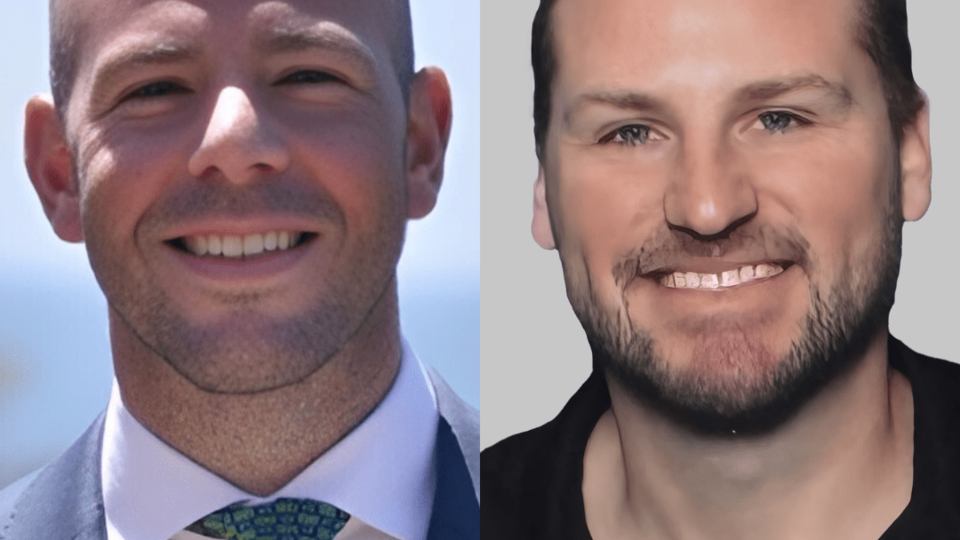
Owl Have You Know
Season 5, Episode 13
During their time at Rice Business, Mike Tatz ’14 and Corban Bates ’15 saw an opportunity to connect veterans with capital and the network needed to start a business. As veterans themselves, they understood how important it is to have the right connections and platform to pitch an idea. With that, the Veterans Business Battle was born.
But Mike and Corban’s story starts long before Rice. The two first met as students at West Point and followed similar paths — from Division I athletics to Army service to financial services, and eventually entrepreneurship. After launching the Veterans Business Battle and earning their MBAs at Rice, Mike went on to found a CBD company for athletes, and Corban began overseeing direct investments into private companies — now serving as the chief financial officer for one of those investments.
Mike and Corban join co-host Maya Pomroy ’22 to chat about how their time at West Point shaped them, what brought them to Rice Business and the impact the Veterans Business Battle has had over the past decade.
Subscribe to Owl Have You Know on Apple Podcasts, Spotify, YouTube or wherever you find your favorite podcasts.
Episode Transcript
-
[00:00] Maya Pomroy: Welcome to Owl Have You Know, a podcast from Rice Business. This episode is part of our Flight Path series, where guests share their career journeys, the stories of the Rice connections that got them where they are.
Mike Tatz and Corban Bates aren't your typical business school graduates. The Army veterans and lifelong friends went from the battlefield to the boardroom and transformed their shared experience by building a movement right here at Rice Business. We dive into their remarkable journeys, what drew them to military service, the leadership lessons forged under pressure, and how those same principles have shaped their lives.
But perhaps, the most inspiring is the story behind the Veterans Business Battle, a national startup competition they co-founded at Rice Business that's now one of the largest in the country for military-affiliated entrepreneurs.
This episode is about friendship, service, and the power of reinvention. Join us now for a conversation about blending duty, grit, entrepreneurial fire, and building something greater than yourself.
Today, we have two guests, Mike Tatz, Class of 2014, and Corban Bates, Class of 2015, both Full-Time MBAs.
Welcome to Owl Have You Know!
[01:22] Mike Tatz: Thanks for having us.
[01:23] Corban Bates: Awesome, yeah, thanks for having us.
[01:24] Maya Pomroy: So, first and foremost, you're both veterans, so I wanted to thank you both for your service to our country.
[01:30] Corban Bates: You're welcome.
[01:31] Mike Tatz: Appreciate it.
[01:31] Maya Pomroy: So, not only that, you really have squeezed quite a bit into your short lives. You served our country. You've been in the financial services industry. You are entrepreneurs. And you both co-founded something really special at Rice Business, the Veterans Business Battle. When I came to Rice and I learned about it, I was like, Wow, that's really, really cool. I'd never heard of anything like this." So, first of all, did you meet at Rice, or did you know each other before?
[02:04] Corban Bates: We knew each other a little bit before. Yeah. I'll let Mike go. He's very much my elder, so I'll let him go first.
[02:09] Mike Tatz: No. I mean, we went to college together. I think we had a bunch of mutual friends.
[02:16] Maya Pomroy: Where'd you go to school?
[02:17] Mike Tatz: We both went to West Point, so United States Military Academy. Corban was a basketball player. I had some super close buddies who were basketball players. And so, our networks, kind of, crossed a little bit in school. And I remember getting a call from Corban when he was thinking about coming to Rice. And we ran from there.
[02:35] Maya Pomroy: You were both at West Point at the same time.
[02:37] Mike Tatz: We were.
[02:38] Corban Bates: And he was a year ahead of me at West Point as well. I've basically just followed him everywhere he's gone, a year later.
[02:44] Maya Pomroy: Well, it seems to have worked out really well.
[02:46] Corban Bates: Yeah.
[02:47] Maya Pomroy: So, Corban. So, tell me why did you decide to join the military? I know that that's a big, overarching question. You may not be able to answer it in a couple of sentences or maybe you will.
[02:57] Corban Bates: I feel like my path to West Point was a little bit different than a lot of people's. You know, most people have to start thinking about this probably their freshman or sophomore year, and they're applying, and they're going through a whole process. I was incredibly blessed to get recruited to play basketball there. So, it really wasn't until my senior year that I started considering it. You know, I was down in Texas.
West Point's all the way up in New York. I had never seen snow. It just wasn't even something that was on my radar. But once they started to recruit me, I started to talk to a lot of other people about it, about the military, about West Point. I was very fortunate to talk with probably four or five West Point grads that are probably about my age now in their late 30s or early 40s and just told me what an amazing opportunity I had and how it could change my life more than probably any other school I was looking at to go play basketball at.
And so, ultimately, I decided to give it a go and embrace this opportunity. And I wasn't sure about the whole military thing. Again, it wasn't something I had even considered, but I decided to give it a go. And I'm incredibly thankful that I did.
[04:00] Maya Pomroy: And what about you, Mike? Are you from a military family or what was your path to West Point?
[04:05] Mike Tatz: You know, Corban and I, even though we played basketball, which we'll all forgive him for, I was a wrestler. And so, you know, I think, for me, didn't have any family in the military, was planning on going to a Big 10 school, and I went out for recruiting visits at West Point.
And when you, kind of, get the experience of normal college, whatever normal college is to people, and you see different campuses, and then you show up at the Academy, and you get thrown in a room with a cadet who's also, in my case, a wrestler, and they say, "Hey, grab your cot. You're going to sleep over there on the floor. You know, we got dinner in 15 minutes," and then I got six hours of homework, and then be ready to be up at 5:30 tomorrow morning for formation, and we're going to march to the mess hall for... All the things.
And I was just blown away by the discipline. And I just remember always saying, "If I hate this, I can always go somewhere else, but you'll never get the opportunity to go somewhere else and then come here." I went to prep school. A lot of athletes go to prep school. You can't redshirt at the Academy. So, I did a year at West Point Prep, where I, kind of, got indoctrinated. And then from there, I went over to the Academy. And it was probably the hardest four years of my life, but the most rewarding four years of my life.
[05:23] Maya Pomroy: So, give us a peek into that. What was the most surprising experience that you had while you were there, you know, really prepping yourself to be in the military?
[05:32] Mike Tatz: I think, ultimately, what the Academy does to people is it shows you that you can push yourself a lot harder and farther than you ever thought possible, not as much physically, but more mentally, right? And so, days and weeks and months and years are structured to really push people to the brim in every aspect of life. So, from showing up as a freshman and having to pick up upperclassmen's laundry, deliver them newspapers every single day, tell them what the meals are, you know, memorizing meals, doing all of the duties that you have, plus going...
[06:08] Maya Pomroy: Very hierarchical structure, huh?
[06:10] Corban Bates: Oh, for sure.
[06:10] Mike Tatz: For sure. And then, you know, I think more so than other schools, you have a very smart student body who expects to do very well in class. And I think, at the Academy, at least from my experience, I don't know if Corban can say the same, but they don't give A's and B's out very much.
It is extremely hard to do well. They want you to fail. They give you more work than you can handle. And so, you really have to figure out your time management skills. And on top of that, being an athlete, when you're working out two or three times a day, traveling for your team, people appreciate, I think, that we're on the fields of friendly strife and playing our sports that we were doing, but they didn't care. There was no special treatment for an athlete.
So, all of the things that you had to do from a cadet responsibility perspective was still expected from you on top of school, on top of sports. And so, long story short is you learn how to push yourself more than you ever thought was possible. And I think that foundation that you build there doing that sets you up for the rest of your life because you feel like you can do anything.
[07:16] Corban Bates: And to add on that, I'd say just the workload. Again, I didn't go anywhere else, but the workload compared to a lot of our peers in college is just so high on purpose, like Mike said. I mean, they purposely give you way more than you can do in 24 hours. And you really have to learn time management. You have to set priorities of work.
That's a big thing in the Army is establishing your priorities of work. And then, layer on top of that, to be a Division I athlete, where your coaches are like, "Hey, you came here to play basketball. You came here to wrestle. Like, we expect you to be putting in all your effort toward this and staying after practice. Get more shots up," all this stuff. It's like, yeah, where on earth do you have the time to do all of this stuff? You really have to start figuring out, "Okay. I can do this this day. I can do this at this time. If I move this around, I can do this."
Like, it forces you to get really good at time management. And then it becomes normalized because you carry that into the Army. And then I can remember going into Rice. And while maybe some of our peers, it was an elevation of workload to what they were used to at their undergrad. I know a lot of us, Academy grads, were like, "Hey, this is, like, extremely manageable. Like, there's no, you know, sports. We actually have time at night. Like, we can go to, like, Partio or things like that. Like, this is amazing."
[08:34] Maya Pomroy: No, for sure. So, after you graduated from West Point, was it straight to Rice?
[08:39] Corban Bates: No. Every service academy grad, no matter what academy you go to, owes at least five years of service to their branch. So, we both went into the Army. West Point feeds into the Army.
[08:49] Maya Pomroy: Were you deployed?
[08:51] Corban Bates: Yes. I spent about a year in Iraq.
[08:53] Mike Tatz: And I was not. I shot missiles. I was actually on my way to Korea when I got sent out to NORAD and NORTHCOM. And I worked with our long-range missiles. So, as we would tell people, we could deliver anywhere in the world in 30 minutes or less. So, I didn't have to go anywhere. I had the buttons right in front of me.
[09:11] Maya Pomroy: So, five years in the Army. And then what made you start thinking about business school?
[09:17] Corban Bates: When I got back from my deployment, I had about two years left in the Army. And I actually enjoyed the Army a lot more than West Point and had contemplated staying in, but I wasn't truly passionate about it. I wasn't sure what my passion was at the time, but I knew I wanted to go try to find it. And so, I started looking at different opportunities.
Being from Houston and my wife being from the same area, we wanted to get back to Houston. And so, I, kind of, started to look at different opportunities in Houston. There was this Service Academy Career Conference that was in San Antonio. And so, I thought, "Well, let me just go to that and see what opportunities are there." And that's actually where I reconnected with Mike.
Mike's been a huge blessing in my life because business school wasn't really even on my radar. It's just, kind of, going up and down the aisles of the career conference. And there were probably 20 schools there, but I didn't talk to any of them because it wasn't on my radar. And I talked to Mike. I just ran into him. And it's like, "Hey, how have you been?" like, you know, all that stuff. And it had been five years. Yeah.
[10:13] Maya Pomroy: Really? Just randomly? You just ran into him?
[10:16] Corban Bates: Yeah. He was there recruiting for Rice. Rice had a booth. And he starts telling me about it. And he was just about to start this internship at Goldman Sachs. And he had this amazing first year at Rice. And it just sets you up. And I'm like, "That all sounds awesome.” But I want to think, like, round three for applications had just opened up. Like, and it was like, I hadn't even taken, what is that, GMAT or anything. And so, he tells me about all this. And it's like, okay, I have, like, three weeks to, like, take the GMAT, get an application in, and just pray that I...
[10:46] Maya Pomroy: But if anybody was prepared for that, based on what you just told me about West Point, that's you.
[10:51] Corban Bates: That's true.
[10:52] Maya Pomroy: And you can get that stuff done.
[10:53] Corban Bates: Yeah. I just ran towards it and was extremely fortunate to get in. And Mike completely changed the course of my career. If I hadn't run into him, then things would be very different.
[11:03] Maya Pomroy: So, you were running a booth for Rice. So, Mike, what was your path to Rice?
[11:08] Mike Tatz: Very similar to Corban. You know, if I think about my life up until Rice, I lived under my parents' roof, under their rule and iron fist. I thought I was going to go to college. I went to the Academy where I lived under the fists of the powers that be, right, very structured life. Someone told me when to wake up, when to go to bed, when I could eat, when I could go out on the weekends, and all the different things, right? Now, I graduate. I'm 23.
I go into the military. I still have someone that tells me when I can work out, when it's time to eat. I still have to submit a request to go on vacation or leave the area of my base, right? So, now, here, I get to being 28, 29 years old, and I feel like I've never been able to make a decision on my own.
I've always been told what to do. I've never had the power to say, "Hey, this is what I want to do." And so, with wanting that power of making that decision and also wanting to do things, I hadn't known anything besides life at home being a kid and then being in the military.
And so, this big world of business, what is the business world, right? How do we do this thing called business, right? And so, you know, I contemplated just getting a job, but I said, "Hey, I need to, uplevel my skills in my education so that I can speak the same language as the smart people that are out there and then really figure out what is out there." And so, looking at different schools and ended up landing at Rice, it was just a blessing.
[12:39] Maya Pomroy: So, you landed at Rice. And of course, you were the person that was, you know, supposed to recruit the best recruits, right? And that's how you found Corban. So, you were both at Rice and then decided to start this amazing business battle, Rice business battle.
So, tell me the how that started. What was it that was, sort of, the eureka moment when you were there going through the program that you're like, "You know what? Like, this is a great entrepreneurial school. It's known to be the top entrepreneurial school in the country. And you know what? Let's figure out a way to fold in vets."
[13:18] Mike Tatz: Yeah. So, I think, really quickly, and then I'll let Corban take over here, but piggybacking off that last story of living under a parent's roof, joining the military, and then life after the military, I want to be very clear that the fact that we call it the Veteran Business Battle and it's for veterans, I don't think veterans need any special treatment or should they expect or do we expect any special treatment.
But what I do think is the case is that, as, going back to that last example, here I am, I'm 28, 29, finally getting out of the military, and let's say I do want to start a business. Starting a business, there are a lot of steps to it, but one of those steps that is crucial is capital, right?
[14:01] Maya Pomroy: Yes.
[14:01] Mike Tatz: And so, my network being in the military is, you know, Army sergeants, Army majors, privates, whatever it may be, right? I'm not…
[14:11] Maya Pomroy: They're not the Goldman Sachs folks.
[14:13] Mike Tatz: They're not the Goldman Sachs folks. They're not the people looking to make investments into companies. They're not the people with the means to not only provide financial capital but mentorship capital and experience capital that you would need as somebody being in the military coming out and trying and wanting to start your own business. And so, I think there was an opportunity to find a way to support veterans who didn't have those networks and didn't have some of the intellectual capital and mentorship capital necessary to start businesses.
And we said, "Hey, we have a great network here." And it really stemmed from Al Danto and the entrepreneurship organization and all the guys there that, one, had been there, done that, two, had financial resources where, if they saw an opportunity and something that intrigued them from an investment standpoint, had the capital to potentially make investments, and they also had networks of people that had the capital to make investments, right?
So, all the stars, kind of, aligned in terms of what would be a really great opportunity for a veteran who didn't have any of those resources. And then the top layer of the cake is that they were all... and by they, I mean Al Danto, you know, Mark Martin, the entrepreneurship organization, all of those leaders that helped found this, they had such a will to make this successful and put this thing on and support the veterans. And so, when he, kind of, gave us the green light that we had his support and his cohort's support, then we just ran with it.
[15:54] Maya Pomroy: So, let's back up for a second because Rice is known for lots of business plan competitions, you know, the Rice Alliance for Technology & Entrepreneurship, one of the biggest ones in the country. So, it's known for that, right? And Al was a part of that to begin with, with his career at Rice as a student and as a professor. So, tell me the story of... So, you're in Al’s class. Were you both in Al’s class at the same time?
[16:19] Mike Tatz: Not at the same time.
[16:20] Corban Bates: No. Now, Mike was a year ahead of me, but actually, when I went on my visit to Rice, the one class I sat in with Mike was Al Danto's class.
[16:31] Maya Pomroy: Which one?
[16:31] Corban Bates: I think it was the Entrepreneurship 101 or whatever they call it, just whatever the intro class is.
[16:36] Maya Pomroy: That sold you, didn't it? You're like, "I'm coming here."
[16:38] Corban Bates: It really did.
[16:39] Maya Pomroy: I know.
[16:40] Corban Bates: It was the day that he had another veteran as a guest speaker named, I think, Jim Vesterman-
[16:46] Mike Tatz: Yep.
[16:46] Corban Bates: ... talking about search funds. And I just heard all this. And I was like, "This is incredible. Like, this is an awesome class. Like, this search fund concept is an amazing concept. I'd love to do that someday. Like, this is exactly where I want to be." Yeah, it definitely sold it for me.
[17:02] Maya Pomroy: And so, did you, guys, talk to one another and say, "Hey, I've got this idea."?
[17:08] Corban Bates: Backing up a little bit more, I mean, Rice came up with this concept of really bringing on more veterans to their business school. I think it's a great match of veterans being very far along in their leadership development and people management development by the time they're in their late 20s but being behind on the business concepts and then you pair, you know, the rest of the civilians who are advanced in their business concepts but are probably lacking on the leadership front, probably haven't led that much in their 20s. And so, it's this great pairing where both sides can learn from each other.
And Rice really took the initiative to where, I think it's Mike's class, my class was probably around 10% to 12% veterans, more than anywhere else in offering, you know, very generous scholarships and things like that to bring veterans here. We were getting applications from veterans all over the country that wanted to come to Rice because of the reputation it had built in the veteran community. And so, I know a couple classes ahead of me, here became this sense of wanting to make sure, one, we were pulling our weight but also giving back to the university all the gratitude we felt for all that they were giving us, the opportunities they were giving us as veterans. How do we come up with events or things that could help, you know, advance Rice, help advance veterans, help advance the school?
And there was a number of things we came up with, but I know this concept of the Veterans Business Battle really piggybacked off of the reputation Rice had with its business plan competition. And it was just, man, wouldn't it be awesome if we took this same concept and just applied it to veterans?
And certainly, that wasn't my idea. I, kind of, came in on the end. So, it's really Mike and his class that were the brainchild of this and working with, you know, he mentioned, Al Danto. And there's a lot of guys Mark Martin that really poured into this that we're the beneficiaries of. And that's, kind of, how it got going.
[18:59] Maya Pomroy: So, tell me how it works, right? Do you apply? Tell me the steps of, how to be a part of it.
[19:04] Mike Tatz: So, 100%, we structured it after a normal business plan competition. You submit applications, you need to have a full business plan, business plans got vetted, sent to all. We obviously have two customers, right? We have the veterans who are applying, and then we have the group of investors and angels and the VCs, the private equity, the family offices, all of those folks.
So, we, kind of, made our pitch to the veteran community and marketed it in the ways that we could. I remember emailing every head of every business school veterans club, and letting them know what we were doing and if there were any veterans interested that they should apply. And we started getting applications.
We ended up doing, I think, an internal vet between the veterans at Rice with, I think, Al and a few of the other EO, board members. We limited it down to a group of 30. And then we passed it out to our group of investors and said, "Which companies do you think are the most investible and would you like to hear pitches from?" And we got a group of 15. And we invited them to Rice. And the rest is history.
[20:14] Maya Pomroy: The rest is history. So, what was that first prize? Do you remember?
[20:18] Corban Bates: You know, everyone always did ask, because we phrased it as a competition, so people would be like, "Hey, what is the prize? What do you win?" And it was like, "Hey, this is more of a platform to put you and your business idea in front of different investors."
[20:31] Maya Pomroy: Investors.
[20:32] Corban Bates: Right. And so, we certainly have people that are committed to investing in good concepts, but really, that's up to you all to negotiate. You know, it depends on what you're asking for. And we have developed small prizes, like, oh, best pitch gets this, and I think there are a few other small ones, but the real fruit for wanting to come was, “Hey, you're going to sit in front of a room of 20, 30 investors. And if you say, ‘I need $500,000 to do this, you know, business that I want to launch, like, that's your prize. Go out, convince the investors, and you know, get the capital you're looking for.”
[21:04] Maya Pomroy: So, what have been some of the concepts? What are some of the ideas that have really taken off? And first of all, did you think that this would be... we'd be talking about this like 12 years later after you launched something like this that's brand new, that really had never existed before?
[21:19] Mike Tatz: It's wild. I mean, I think, to this point, millions of dollars have been offered in investments through this business plan competition. That being said, the investors have invested in things from drone companies down to, one of our first companies, I remember, the first year, was called ManSalt. And it was a veteran who said, "I like taking baths. And I go to the store. And there's all these salts for women. And so, I made a man's bath salt."
And he was one of the companies that got an investment during the first competition. But I mean, we have seen the gamut from super high-tech, people trying to send things up to space and working with research institutes, all the way down to trinkets that would be fun to sell or, kind of, funny, cute ideas, call it. And so, we've seen the whole gamut.
[22:11] Maya Pomroy: And, you know, the camaraderie that you're creating amongst this group of people that have walked in the same shoes and seen the same things and experienced things that a lot of people just don't and don't really understand and bringing, you know, that group of people together and creating something new must feel really, really rewarding.
[22:37] Mike Tatz: Yeah, it's awesome. Yeah. I mean, I still get emails from people from the early competitions. It's incredible. It's a bond that you can't really understand unless you've experienced it or been through it.
And having everybody together, I mean, I think, once the nightcaps start happening, you know, and you start telling stories, it's fun, it's good, and just great, great people that are ambitious and just want to do something that they want to do, which is the whole point of everything, I think, that we've wanted and the whole point of the competition, right? Do what you want to do.
[23:12] Corban Bates: And it's also amazing that all the veterans who've come behind us at Rice have kept this going. Like you said, it's been 12 years.
[23:18] Mike Tatz: Amazing.
[23:18] Corban Bates: You know, I remember talking to the classes behind us of saying, "Hey, like, this was something we're passionate about, but there might come a time where you, guys, just aren't that passionate about this, and that's okay. You might have your own passions." We've, kind of, left it up to each class to continue running it, if they wanted to keep running it.
It's not something that, you know, we've had to continue to run for 12 years. So, the classes behind us get a lot of credit, too, for continuing it, seeing the value in it, and putting in all the work, because all the work stays the same. It's still a lot of work. You know, we may get credit for being a part of the starting crew, but all the classes that have come behind us have had to put in the same work to keep this going and really growing it as well.
[23:57] Maya Pomroy: So, you both were in the finance industry, a private equity, and you were at Goldman, doing private wealth work, and all that. Tell me what you're doing now because it's really, really fascinating.
[24:09] Mike Tatz: You know, to be totally honest, I would say I'm mostly retired doing my own things.
[24:16] Maya Pomroy: That's nice. Thanks, Rice.
[24:18] Mike Tatz: Yeah. Thank you, Rice. Yeah. But I'd left Rice. I went to Goldman. For me, personally, and a lot of the things that we've been talking about in terms of figuring out our life, I knew that Mike Tatz was not somebody who was going to sit in an office in a suit every day and sit behind a computer.
That just wasn't who I wanted to be and what I wanted to do with life. And so, I said, "Hey, you know, I've always bet on myself in the past. I think a lot of whether it be the wrestling mentality, whether it be the military mentality, whatever it is, you run to the fight, right? And you only get so many turns around this sun," or whatever. And so, I was like, "Pretty soon, I'm going to get pigeonholed into this job."
[25:03] Maya Pomroy: How long were you there? How long were you at Goldman?
[25:05] Mike Tatz: I was there for about three and a half years. It was just a job. And I think I never wanted to just have a job, right? One, I always wanted to do something for me. And two, I wanted to do something that didn't feel like a job, but actually was something that fueled my fire every single day. And so, as we talked about, my passion was sports. So, I left Goldman to get into the sports industry. And I went out to California, where I worked for a sports media company and then had a sports agency that worked with sports enterprises.
[25:38] Maya Pomroy: How was that?
[25:39] Mike Tatz: It was amazing. We didn't work with athletes. We worked with sports enterprises. So, from developing stadiums, doing naming right deals on stadiums, helping sports brands figure out how to monetize their assets, helping sports teams monetize their assets, Formula 1, how do we create content around all the things that you are doing, whatever it might be.
We got very involved in eSports while I was there, which was a whole another beast for me. I'm not a gamer, but we started doing a whole bunch of stuff in eSports. And so, my time with the agency was incredible. And then from there, I ended up partnering with a very close friend of mine.
And we started a CBD company for athletes. So, we actually launched our business selling CBD products for pets, then we had an Amazon-exclusive brand. And all the meanwhile, we were building, kind of, our flagship CBD brand, which was a brand for athletes. We worked with a marketing team that worked with Nike and built the brand. And then we just went crazy. And it was awesome.
[26:51] Maya Pomroy: And it's called Resilience CBD.
[26:52] Mike Tatz: It's called Resilience CBD. Yeah. So, I ran the company for about five years with my partner. I still have ownership in the company. I ended up stepping away. And now, I spend my time doing my own investing. I coach a lot of kid's sports and play some poker on the side.
[27:08] Maya Pomroy: Oh.
[27:09] Mike Tatz: Yeah.
[27:10] Maya Pomroy: So, what kid's sport, wrestling? Do you coach wrestling or something...
[27:13] Mike Tatz: I coach wrestling, soccer, baseball, flag football. I do all of them. I say I'm a professional kid's sports coach now.
[27:20] Maya Pomroy: And I bet you've seen some stuff in kid's sports.
[27:23] Mike Tatz: Man, it is wild now, very different from when I was a kid, I'll tell you that.
[27:29] Maya Pomroy: Yes, because I've got kids that are in sports. And for me, the most interesting part of it is, like, it's not so much the kids. It's the parents that are nuts.
[27:37] Mike Tatz: Oh, my gosh. I can take the kids all day. It is so true. It is so true.
[27:42] Maya Pomroy: Yeah. Like, this is about your kid. It's not about you.
[27:45] Mike Tatz: Yeah. Hey, it's 8-year-old girl softball. We're all going to be okay at the end of the day here.
[27:53] Maya Pomroy: So, Corban, tell me about what you've been up to because you were in finance as well. And now, you're running an artisan bakery.
[28:00] Corban Bates: Yeah, interesting path for sure. But right after Rice, again, just, kind of, followed in Mike's footsteps. Again, he was definitely a big blessing to me, to where he was a year ahead of me. He had, you know, done his internship at Goldman Sachs and gotten a full-time offer. And so, he's telling me all about it. And I had come to Rice wanting to get involved in finance somehow, investing, things like that. And it seemed very appealing.
And, you know, looking at the different opportunity sets, decided to try to go do what Mike did and go down the private wealth management path at Goldman Sachs, had a couple other Academy grads really help me through the process and get me in there. You know, similar to West Point, Goldman Sachs has a very low acceptance rate. It's very difficult to get a job there. And so, again, just incredibly blessed that some service academy grads helped me get in there. But similar to Mike, within about six months, I thought, you know, "This probably isn't what I want to do long term."
[28:56] Maya Pomroy: You're like, "And I'm out."
[28:58] Corban Bates: Yeah. I mean, certainly nothing against Goldman Sachs or the profession.
[29:02] Maya Pomroy: Sure.
[29:02] Corban Bates: I felt like the people there were great, and you can build a wonderful career there and do really well financially and have a great life, but the same feeling I got in the Army where I just knew this wasn't my passion and this isn't where my God-given skills and interests align with my career. And so, I ended up being there, similar to Mike, about three years. You know, I used to actually joke with Mike because, you know, he went from high school to West Point to Army to-
[29:31] Maya Pomroy: Rice.
[29:31] Corban Bates: ... Rice to Goldman Sachs and I was just a year behind him every time. So, I was like, "Man, Mike, I can't wait to find out what I'm doing next. Like, whatever you're going to do, I guess I'll be there a year later."
[29:39] Maya Pomroy: You can be coaching kid's sports.
[29:39] Corban Bates: I know.
[29:42] Maya Pomroy: What are you talking about?
[29:42] Corban Bates: I'm like, "I can't wait." You know, at Goldman, we'd be like, "I can't wait to find out what I'm doing next, Mike." But yeah, he left. And then about six months, I can't quite remember the timeline, but I was gone about six months after that, I think. And it was a long road to land where I'm at today. But, very long story short, had gotten to know a family office in Houston, just a wonderful family, a guy that had sold his oil and gas business and had been investing his family's assets for a few years when I met him.
And we just developed a relationship of looking at different deals together. I had actually, from that day I sat in Al's class about search funds, like, on my visit, had always had this in my head that, that sounds amazing. I would love to go buy a small business and run it. So, when I was at Goldman, you know, I actually thought, "Hey, that might be my next step," started to, kind of, look at different small businesses on the side. Like, “I'd love to go buy one of these.” And so, I would meet with this family office, kind of, every quarter, a guy named Brad. And he would talk about the deals.
[30:43] Maya Pomroy: At Vantage Partners.
[30:44] Corban Bates: Right. At Vantage Partners. I actually went to Rice with his daughter. I didn't know that when I met Brad, but just, kind of, like, oh, small world. And so, Brad and his daughter and I would always go to lunch about every quarter. And they would tell me about all the deals they were looking at. I would tell them about the deals I was looking at, like, "Hey, here's might be an interesting one."
And I thought, "If I ever find one of these, I'd love to go to them and see if they would invest." And after building up this rhythm of just looking at deals together for a couple years, they eventually said, "Why don't you come do this for us? Why don't you come and invest in small businesses for us? We've been looking for someone who not only is interested in this and has a skillset but aligns with the way that we see the world, which is a very Christ-centered world, looking to do good with your capital."
And so, man, it was a dream come true. Incredibly blessed. And so, that was in 2018. And I've been with the family office ever since. We've made eight different investments together. And so, for the past two years, I've been inside one of our portfolio companies, which is a commercial wholesale artisan bakery that we invested in late 2019 with this vision of taking a small artisan bakery to becoming a very large bakery.
And it's been a long road, but the company has experienced incredible growth. And it just, kind of, came to, like, me being here very organically where they were growing so fast. They were in Houston. I started coming over one or two days a week just to see where I could help. And then it turned into three or four days a week. And then it turned into five days a week.
And then it was like, "Hey, why don't you be our part-time CFO?" And then like, "Hey, why don't you now be our full-time CFO?" And so, I've just been on this journey with them. It's been an amazing journey. I'm so fortunate for it. I've learned a tremendous amount because I still do have the aspiration to be like Mike one day and actually run my own company.
[32:28] Maya Pomroy: Be like Mike.
[32:29] Corban Bates: I'm just a few years behind him. I thought I was just a year behind, but I think I'll be about 10 years behind him. But no, I'd still love to run a company someday. And this has been a huge blessing to actually get inside one and be a part of the leadership team and drive the growth. And so, that's where I'm at today.
[32:46] Maya Pomroy: What's the artisan bakery called?
[32:47] Corban Bates: It's called Bread Man Baking Company. So, produces just amazing artisan products. I know the first six months I was here, I was taking bread home every day. And, like, the pounds started to creep up. And I'm like, "All right. I got to chill out on taking bread home every day." But no, the products are amazing and have grown from just servicing restaurants and hotels and things like that and grocery stores in Houston to, now, we're all across the United States and Canada. So, yeah, it's been quite the journey.
[33:15] Maya Pomroy: I mean, it's been fascinating talking to both of you to, you know, starting off in the military to, now, all of the real interesting twists and turns and where you are now is really, you know, inspiring and fascinating. And, like you said, it all started at Rice.
[33:31] Corban Bates: Yes. Incredibly thankful for the Rice Business school. I really don't know where I'd be without it.
[33:37] Maya Pomroy: So, any final thoughts? Tell me some final thoughts about where you are now. And if anybody's considering, veteran or not, anybody that's considering doing this and going on this journey, what would you tell them?
[33:50] Mike Tatz: I would start by just saying, “Follow your dreams.” There's a lot of things that you need to personally do to follow your dreams. You need to be humble. You need to not give a crap about what other people think about you.
[34:02] Maya Pomroy: Amen.
[34:02] Mike Tatz: You need to not care about titles and cars and the material things. You need to have a dream. And you need to go do it. And you can do it. You just have to run to it, and you have to do it with all the passion that you have. And I think, if you do that, you can be successful in anything. And I mean, I've seen it through classmates. I've seen it through friends.
I've obviously seen it through my own experiences. I think a lot of people, even at business school, they get very pigeonholed into thinking that they have to be a consultant or an investment banker because they think about the financial support that it's going to give them or the safety net. There's a gazillion ways to make money out there. I think you got to be happy. You got to be happy.
And you can be, but you got to take that leap. You got to have a plan. And then once you figure out what it is, you go, baby, you go as hard as you can, and you make everybody else think that you're crazy for how hard you're working at whatever you're doing. If you do that, I think good things are going to happen.
[35:05] Maya Pomroy: Love it. Corban?
[35:07] Corban Bates: Yeah. I mean, I love what Mike said. I would just say, what was very fruitful for me was really taking the time to truly try to identify what are my God-given talents, what are my God-given interests? You know, I think, a lot of times, I got so caught up in trying to build my resume or do, kind of, what you're supposed to do, what the world tells you to do, or what's going to make you... You know, they'll say, "This is what will make you happy," or, "That will make you happy."
And you just, kind of, get on this track of, like, I wasn't even sure what I was truly interested in or what, you know, was truly important to me. I knew what the right answers were. People would say what's important to you, you know, getting into Goldman, things like that. They say, "Here's what you should say to this question. Here's what you should say to that question. Here's what they're looking for. So, say you're this kind of person."
And you get caught up in this world where I was like, "I don't even really know what I'm truly interested in. I know what I'm supposed to say." Once I took the time to really figure out, you know, how I'm built and what I'm interested in, I would just encourage everyone to go through that exercise and then align your career with that. And you will get so much more fulfillment, and you will likely experience so much more success when you are actually operating in an industry or career that aligns with what you're just naturally good at.
You know, it's really hard. I mean, both Mike and I played sports. It's so hard to go play something that you're not naturally good at. And then when you find something that you are actually naturally good at, it's just so much easier and you go so much further. And then when you put in all that hard work, like Mike said, you just go so much further than someone else who isn't naturally good at it, but they're there for the money or the prestige or something like that.
And so, I would highly encourage, whether it's just in the corporate world or any sort of entrepreneurship venture, make sure it's really aligned with your interests, your abilities, and that your long-term goals align with what you're wanting to do. If it's about money, that's not going to be enough to carry you through. I know I've talked to a lot of guys who have this idea.
And I said, "Hey, I would only go through with this, is if... If you work really hard over the next 10 years and you really, at the end of it, just basically sell it or get out of it for what you put in it, and there's no big exit, like, if you view that as a failure, then you shouldn't get involved in this.
Like, it should be about, kind of, the cliche. It should be about the journey, not necessarily the mountaintop moment. And if you're not going to enjoy that journey, then I certainly wouldn't get involved because it's just not worth it." So, that's a lot of advice I give to people.
[37:34] Maya Pomroy: Well, like Mike said, you only get so many times to go around that sun. So, make them count.
[37:40] Corban Bates: Yes, exactly.
[37:42] Mike Tatz: Yeah, for sure.
[37:43] Maya Pomroy: Well, Mike, Corban, it's been a pleasure.
[37:45] Mike Tatz: Likewise.
[37:45] Maya Pomroy: Really enjoyed getting to know both of you. And, gosh, I mean, I can't wait to see what next for both of you. So, thanks for taking the time.
[37:53] Mike Tatz: Thank you. We appreciate it.
[37:55] Corban Bates: Yes. Very grateful. Thank you for having us.
[37:58] Maya Pomroy: Thanks for listening. This has been Owl Have You Know, a production of Rice Business. You can find more information about our guests, hosts, and announcements on our website, business.rice.edu. Please subscribe and leave a rating wherever you find your favorite podcasts. We'd love to hear what you think. The hosts of Owl Have You Know are myself, Maya Pomroy, and Brian Jackson.
You May Also Like
Rice MBA Career Outcomes: Top Employers, Industries and Salaries for Recent Graduates
Rice Business MBA alumni are advancing careers, pivoting industries and landing roles with top employers in finance, consulting, energy and tech — all with the help of a powerful network and lifelong career support.
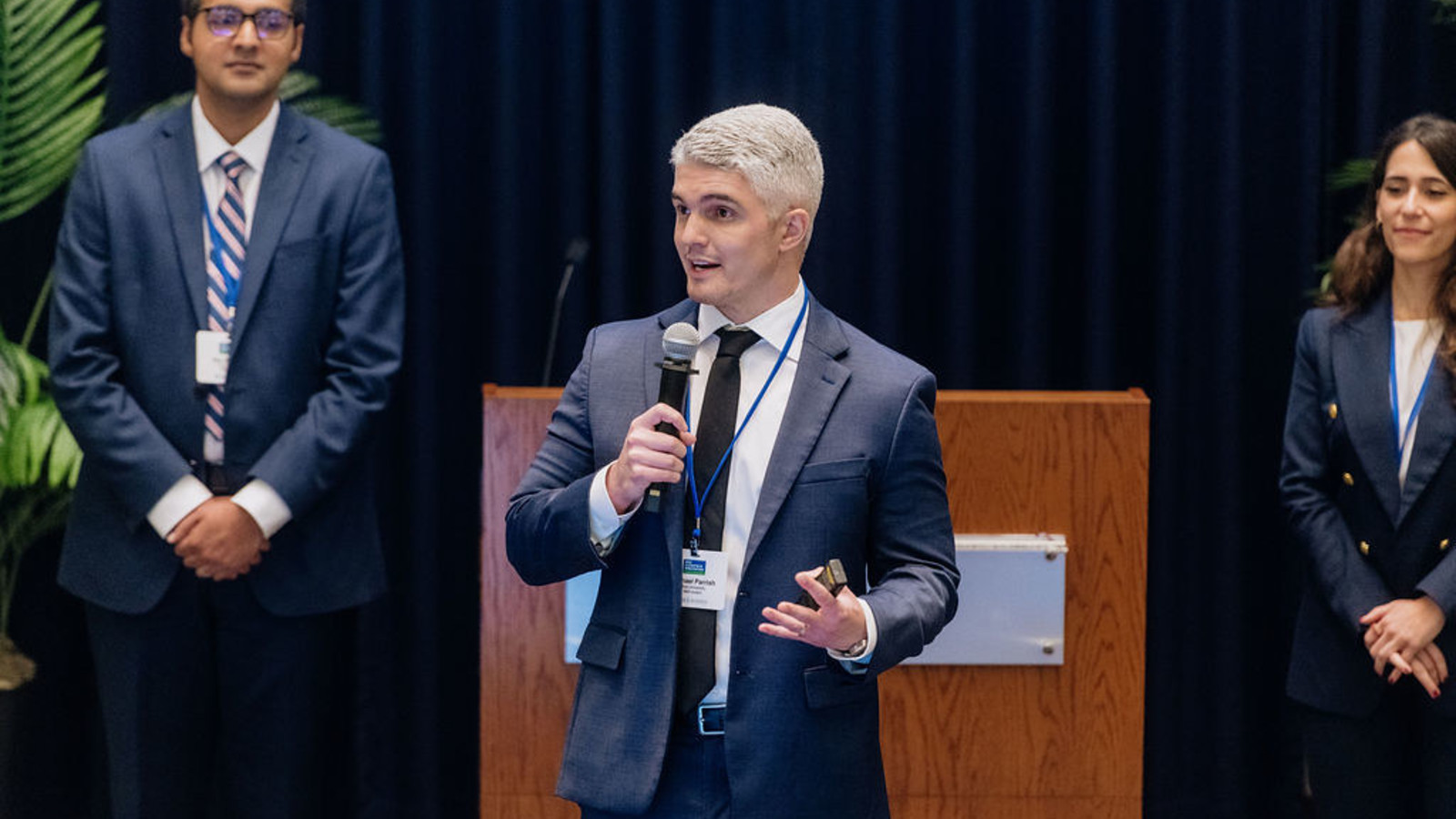
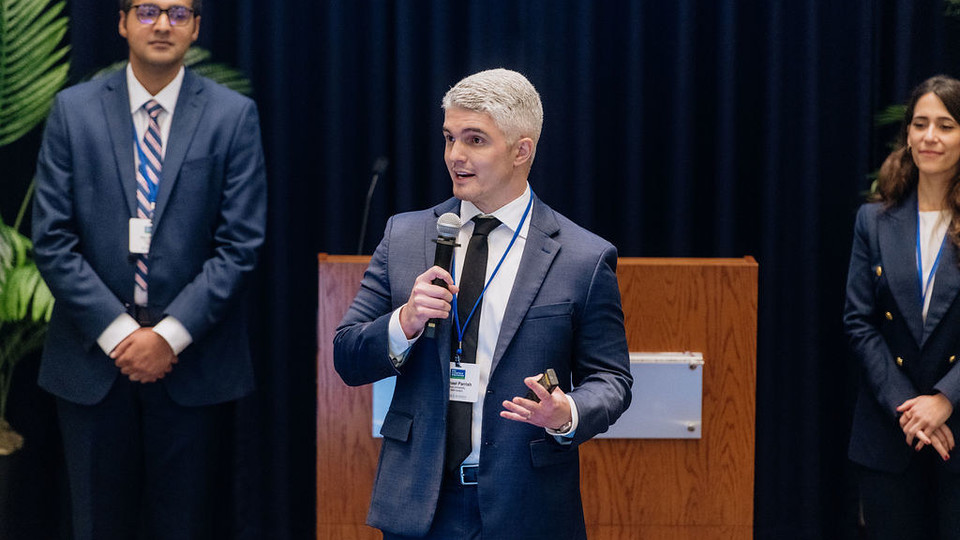
A great career doesn’t just happen. It’s built with support, strategy and the right community behind you. With support that starts on day one and lasts a lifetime, Rice MBA students and alumni have the confidence, connections and capabilities to lead in any industry — and the results speak for themselves.
When our alumni are ready to pivot, level up or launch something new, they’re doing it with the full support of a dedicated Career Development Office, strong partnerships and a network that shows up again and again.
Top Employers of Rice Full-Time MBA Grads
From tech and consulting to energy, finance and startups, our MBA graduates land roles across industries and geographies. Companies are hiring Rice MBAs because they’re ready to lead — and because they know how to solve real-world problems with insight, creativity and a collaborative mindset.
Over the past three years, Rice Full-Time MBA graduates have drawn employers from across various sectors, led by financial services, consulting, energy and technology.
Here’s a look at the top employers in each of the five most in-demand sectors for our students:
- Investment banking: Bank of America Securities, Barclays Global Markets, JP Morgan, Piper Sandler, Wells Fargo
- Consulting: Bain & Company, Boston Consulting Group, Deloitte Consulting, EY-Parthenon, McKinsey & Company
- Energy: ConocoPhillips, EnergyRe Services, ExxonMobil, NRG Energy, Phillips 66
- Technology: Amazon, AT&T, Cisco Systems, HPE, Verizon
While every year presents new hiring challenges in the ever-evolving business landscape, it’s clear the Rice Business network works: nearly all first-year Full-Time MBAs secured internships, and most were made possible by school connections.
Plus, Rice Business saw a surge of new companies hiring Rice Business students this past year, contributing to the more than 175 employers who have hired full-time students from the classes of 2024 and 2025. Details on recent hiring employers and incomes of our Full-Time MBA graduates are available in our career outcomes report.
Interested in Rice Business?
Where Our Professional MBAs Land After Graduation
At Rice, Professional MBA students bring eight years of work experience — and leave ready to lead, launch or level up. For these graduates, energy remains a top industry, with about one-third of graduates accepting roles in the field — whether continuing their careers or making a strategic move. Others are landing positions in consulting, financial services and a wide range of other sectors.
More than 40% of our recent Professional MBA alumni accepted roles at new companies — a strong signal that the Rice MBA opens doors to bold career moves, whether that means changing industries, shifting functions or stepping into new leadership roles. Many also advance within their current organizations, earning promotions and expanded responsibilities before they even graduate.
And with an average starting salary north of $150k and a high rate of signing bonuses, our Professional MBA graduates are seeing a strong return on investment. More importantly, they’re finding work that excites them — roles that challenge, inspire and align with their long-term goals.
While this data reflects outcomes for our Professional MBAs, Hybrid MBA students benefit from the same rigorous curriculum, career support and community that drive these results. Read more about our Professional MBA student outcomes in the career highlights here.
Career Support That Doesn’t Stop at Graduation
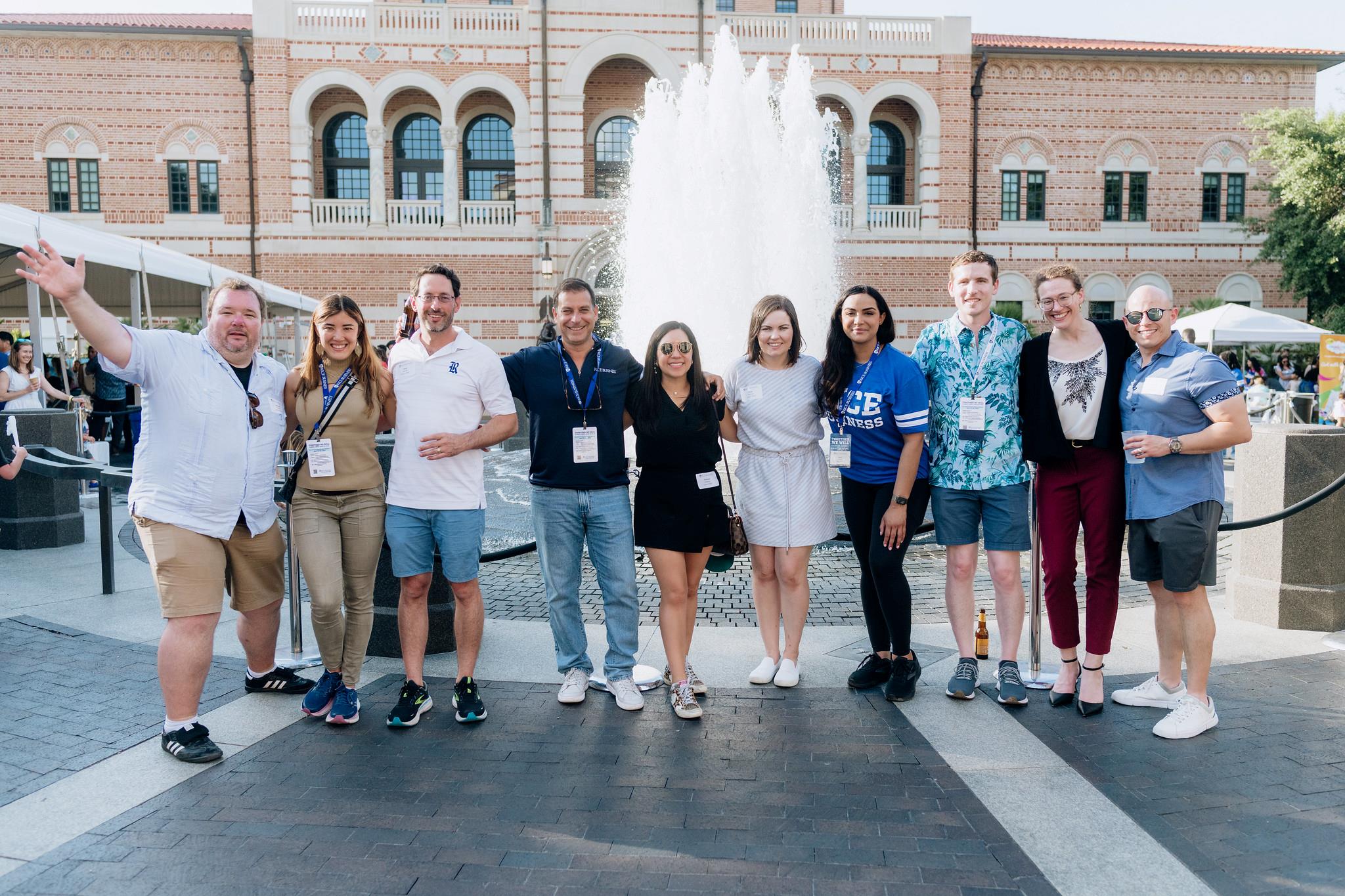
At Rice Business, career support doesn’t end when you land your first post-MBA role — it’s designed to grow with you. Whether you're stepping into a new role, making a change ten years down the line or launching something of your own, you'll always have a community in your corner.
The Rice Business alumni network runs deep — rooted in Houston’s dynamic business world and connected across industries and continents. Backed by a dedicated career development team and alumni programming that keeps you plugged in, the Rice MBA is more than a degree. It’s a long-term investment in your growth.
Hiring? Let’s talk.
If you’re looking for smart, driven professionals who know how to solve problems and work well with others, you’ll find them here. Rice MBAs bring real-world experience and a fresh perspective to every challenge. Connect with us to set up a student coffee chat, host an info session or meet your next great hire.
